MacRumors Roundups
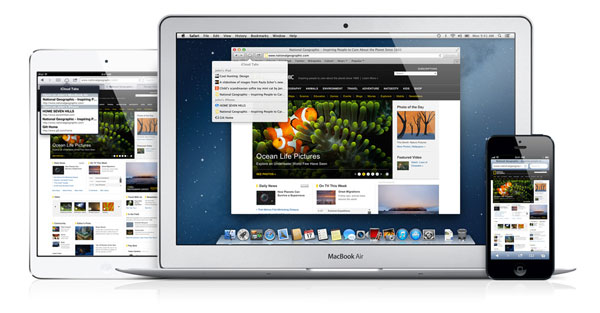
MacRumors Roundups are an overview summary of all the rumors and expectations about a particular product. With the fast paced nature of the Apple news cycle, it can be difficult for even the most dedicated reader to follow every new development.
The goal of each roundup is to simply answer the question of "What are you expecting" for any given product. That opinion is certain to change over time as new rumors are revealed, and the roundups will be updated regularly to reflect that.
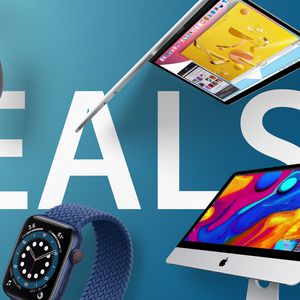
Apple Deals
Our Apple Deals roundup is designed to be a one-stop destination for finding a great deal on Apple products like Macs, iPads, and iPhones, or accessories related to Apple products. In the first section of the roundup, you'll find deals on accessories that range from iPhone cases and cables to docks, bags, software, and more. Our weekly deals section is updated regularly, with new deals added as we discover them. We'll be adding and removing deals as they expire, so make sure to bookmark this page and check back often to find some of the best discounts available on Apple accessories. This section will also highlight significant Mac, iPhone, iPad, and Apple Watch deals, along with our weekly giveaways and app sales.Below our deals section, you will find price comparison charts for all of Apple's Macs and iPads. This is a great tool to use when shopping for a new product because it will allow you to compare the prices from five of the biggest apple resellers: Best Buy, Amazon, MacMall, Adorama, and B&H Photo. It's a useful way to find the lowest price at a glance and keep an eye out for sales. Prices highlighted in green denote significant discounts. When you're looking for a new device, make sure to take a look at our price comparison chart so you make sure you're getting the best possible deal. Come across an amazing deal you'd like to see added to the Buyer's Guide Deals Roundup? Send us an email so we can share the best discounts with all of our MacRumors readers.
Read Full Roundup • Last updated 23 hours ago

iPhone 17 Pro
Introduced in September 2025, the iPhone 17 Pro and iPhone 17 Pro Max are Apple's latest flagship iPhones, which means now is a good time to buy. A new model won't be coming out until September 2026, so there are still several months to go.The iPhone 17 Pro models feature Apple's most significant Pro model update in years, with a unibody aluminum chassis and a vapor chamber cooling system to maximize the performance of the A19 Pro chip. There's a 48-megapixel triple-lens camera system featuring a new Telephoto lens with up to 8× zoom, and the Pro models feature the longest battery life of any iPhone to date. These are Apple's highest-end iPhones with the best possible feature set and camera technology.Starting at $1,099 for the Pro and $1,199 for the Pro Max, the iPhone 17 Pro models are more expensive than the $999 iPhone Air and the $799 iPhone 17, but they have the most advanced feature set available in the iPhone line.
Read Full Roundup • Last updated 5 days ago

iPhone 17
Introduced in September 2025, the the iPhone 17 is Apple's most affordable flagship iPhone, sold alongside the higher-end iPhone Air, iPhone 17 Pro, and iPhone 17 Pro Max. The iPhone 17 was released in September 2025, which means now is a good time to buy. A new model is not expected until early 2027, because Apple is changing its entry-level iPhone timing. There will be no new iPhone 18 in 2026, but there will be more expensive iPhone 18 Pro and iPhone Fold models.The iPhone 17 has an A19 chip that supports Apple Intelligence, an excellent OLED display with a 120Hz ProMotion refresh rate and Always-On functionality, a dual-lens camera system with two 48-megapixel lenses, an Apple-designed networking chip, more scratch-resistant front glass, a Camera Control for quick camera access, and a customizable Action button.Pricing starts at $799, and the iPhone 17 offers a good balance between functionality and price. If you're looking for a step up, Apple has the iPhone 17 Pro models with upgraded A19 Pro chip, an improved thermal design, and a triple-lens camera system.For those who want a more affordable device, Apple also offers the $599 iPhone 16e, and the prior-generation iPhone 16 and iPhone 16 Plus with prices starting at $699.
Read Full Roundup • Last updated 5 days ago

iPadOS 26
iPadOS 26 is the newest version of iPadOS, the operating system that runs on the iPad. If you were expecting iPadOS 19, you might be a little surprised to see Apple jump to iPadOS 26, but the new number reflects the 2025–2026 release season for the software update. It lets Apple use the same number across all of its updates, so there's no more confusion since you're no longer downloading iOS, macOS, visionOS, and watchOS all with different numbers. iPadOS 26 brings the first new major design change that Apple has brought to iOS since iOS 7. Liquid Glass reflects and refracts its surroundings, while putting more focus on content. Many interface elements are almost entirely translucent, and the design extends to controls, navigation, app icons, menus, buttons, and widgets. Liquid Glass transforms depending on content or context, and it behaves like glass in the real world, so color bleeds through from the background, and it is able to adapt well between light and dark elements. Liquid Glass uses real-time rendering and can dynamically react to movement to change the way that light reflects off of buttons, switches, sliders, side bars, tab bars, and more. You'll see Liquid Glass throughout iPadOS 26, in all of Apple's apps, in notifications, on the Lock Screen, in Control Center, and on the Home Screen. Apple is also providing developers with tools to bring the new material to their own apps for a cohesive look. Liquid Glass extends to iOS 26, macOS Tahoe, visionOS 26, tvOS 26, and watchOS 26.
Read Full Roundup • Last updated 5 days ago
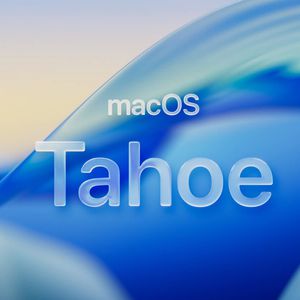
macOS Tahoe
macOS Tahoe 26 is the latest version of macOS, the operating system that runs on the Mac. macOS 26 follows macOS 15, with Apple streamlining the numbering for all of its operating system updates. Everything coming out this year uses "26," which reflects the 2025–2026 release season for the new software. Apple always gives macOS an extra name that's based on a California landmark, and this year, it's Tahoe. Tahoe is a popular lake and ski destination in California, and now the name for the 2025/2026 macOS release. macOS Tahoe, like iOS 26, adopts Apple's new Liquid Glass material design. Liquid Glass is translucent and it behaves like glass would in the real world, reflecting light and the color that's behind it. Liquid Glass extends to desktop icons, folders, the Dock, in-app navigation, menus, toolbars, and the Control Center. The menu bar is translucent, revealing more of the display so it feels larger.
Read Full Roundup • Last updated 5 days ago

iOS 26
iOS 26 is the newest version of iOS, the operating system that runs on the iPhone. If you were expecting iOS 19 after iOS 18, you might be a little surprised to see Apple jump to iOS 26, but the new number reflects the 2025-2026 release season for the software update. It also lets Apple use the same number across all of its updates, so there's no more confusion since you're no longer downloading iOS, macOS, visionOS, and watchOS all with different numbers. iOS 26 brings the first new major design change that Apple has brought to iOS since iOS 7. Apple says that the new "Liquid Glass" look will be the basis of the next decade of iOS design. Liquid Glass reflects and refracts its surroundings, while putting more focus on content. Many interface elements are almost entirely translucent, and the design extends to controls, navigation, app icons, menus, buttons, and widgets. Liquid Glass is meant to transform depending on content or context, and it behaves like glass in the real world, so color is informed by its surroundings, and it is meant to adapt between light and dark elements. Liquid Glass uses real-time rendering and can dynamically react to movement to change the way that light reflects off of buttons, switches, sliders, side bars, tab bars, and more. You'll see Liquid Glass throughout iOS 26, in all of Apple's apps, in notifications, on the Lock Screen, in Control Center, and on the Home Screen. Apple is also providing developers with tools to bring the new material to their own apps for a cohesive look. Liquid Glass also extends to iPadOS 26, macOS Tahoe, visionOS 26, tvOS 26, and watchOS 26.
Read Full Roundup • Last updated 5 days ago
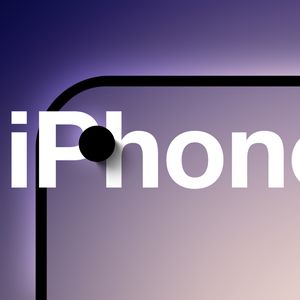
iPhone 18
With the iPhone 18 lineup that's planned for 2026, Apple is making major changes. There will be tweaks to the launch timelines of the different iPhone models, plus Apple is planning to introduce its first-ever foldable iPhoneThe full iPhone 18 lineup is expected to include the iPhone 18, the low-cost iPhone 18e, the iPhone 18 Pro, the iPhone 18 Pro Max, and the all-new iPhone 18 Fold, though naming for the new foldable hasn't been established. That's a lot of iPhones, so the four more expensive models will launch in fall 2026 and the less expensive models will follow in early 2027. The iPhone 18 Air, Pro, Pro Max, and Fold will come in September 2026, while the iPhone 18 and iPhone 18e will launch in 2027.Note: See an error in this roundup or want to offer feedback? Send us an email here.
Read Full Roundup • Last updated 5 days ago
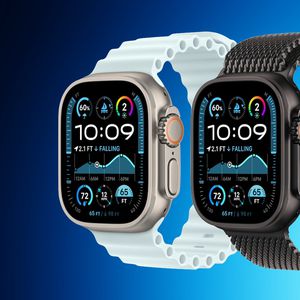
Apple Watch Ultra 3
The Apple Watch Ultra 3 is Apple's most expensive watch, priced starting at $799. It is designed for outdoor enthusiasts who need more durability and a wider range of features than those who wear the standard Apple Watch.The Apple Watch Ultra was refreshed in September 2025, which means now is a good time to buy. We are not expecting another update until September 2026 at the earliest, and Apple so far has not always refreshed the Ultra on a yearly basis. It's not yet clear if we're getting a refresh in 2026.Compared to the second-generation Ultra model, the Apple Watch Ultra 3 has a larger and brighter display, slimmed down bezels, 5G support, and satellite connectivity. Compared to the Series 11, the Apple Watch Ultra has better water resistance, a more rugged enclosure, and longer battery life.The Apple Watch Ultra is Apple's largest Apple Watch at 49mm, and it might not fit some people with smaller wrists. Those who do not need the feature set of the Ultra or who need a smaller watch should check out the Apple Watch Series 11.
Read Full Roundup • Last updated 2 weeks ago
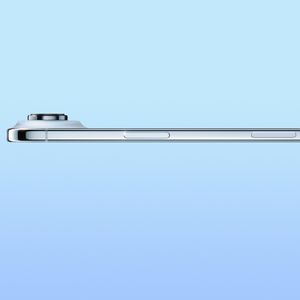
iPhone Air
The iPhone Air is Apple's thinnest, lightest iPhone to date. Apple debuted the iPhone Air in September 2025, and now is the best time to buy the iPhone Air. No new model is expected until 2027 at the earliest. The iPhone Air is 5.6mm thick and it has a 6.5-inch display, which means it is in between the iPhone 17 and the iPhone 17 Pro Max in size. Starting at $999, the iPhone Air is Apple's mid-priced device. It is $200 more expensive than the iPhone 17, but $100 less than the starting price of the $1,099 iPhone 17 Pro. Compared to the iPhone 17, the iPhone Air is thinner, larger, and lighter. It has a titanium frame, 12GB total memory, and an A19 Pro chip, while the iPhone 17 uses aluminum, has 8GB RAM, and has an A19 chip.The iPhone Air is something of a compromise because it has only a single 48-megapixel rear camera. The iPhone 17 has a dual-lens rear camera, and the iPhone 17 Pro has a triple-lens rear camera. Along with the one camera, the iPhone Air also has a mono speaker and lower battery life than the other iPhone 17 models. Choosing the iPhone Air means getting Apple's thinnest and lightest design, but sacrificing camera capabilities and battery life.
Read Full Roundup • Last updated 2 weeks ago
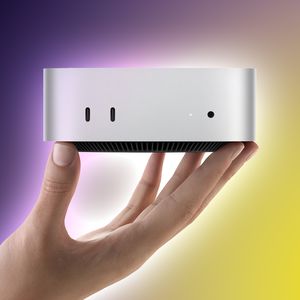
Mac mini
Refreshed in October 2024, the Mac mini is midway through its product cycle, but now is still an okay time to buy. Priced starting at $599, the Mac mini is Apple's affordable desktop option, and with an M4 chip and 16GB memory at a minimum, it is an excellent deal. We are not expecting another Mac mini update until mid-2026, with Apple set to add M5 and M5 Pro chips. If you prefer to have the latest technology, you may want to wait for a refresh.The current Mac mini models have M4 and M4 Pro chips inside, along with Thunderbolt 4 or 5 ports, up to 64GB unified memory, SSD storage up to 8TB, and a small and compact size. Note that the Mac mini does not come with a display or peripherals, so you will need to supply your own.The Mac mini is Apple's smallest desktop machine, but Apple also offers the Mac Studio and the Mac Pro for more intensive tasks that require more power. If you're trying to decide if you should upgrade to the new Mac mini, or need help choosing between the Mac mini and Mac Studio, we have helpful buyer's guides, plus an up-to-date guide on where to get the best Mac mini deals.
Read Full Roundup • Last updated 2 weeks ago
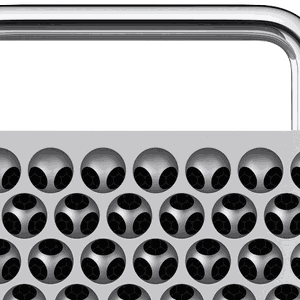
Mac Pro
The Mac Pro was designed to be Apple's most powerful Mac, offering extreme performance and a large amount of modularity and configuration options, and it is specifically aimed at those who need access to PCIe expansion slots for storage, audio and video I/O, networking, and more. Apple last refreshed the Mac Pro in June 2023, and there is no word on when the Mac Pro might see an update. Potential Mac Pro buyers should consider the Mac Studio instead, as that is where Apple is focusing its attention. Apple believes the Mac Studio is the future of desktop computing.The M3 Ultra Mac Studio offers faster performance than the Mac Pro, but it doesn't have the same flexibility for adding components. The Mac Pro is Apple's most modular and powerful desktop Mac, and it is priced accordingly, starting at $6,999. The M2 Ultra Mac Studio is priced starting at $3,999, while dropping down to an M2 Max chip lowers the starting price of the Mac Studio to $1,999. Apple also offers the Mac mini, which is a desktop machine that is more affordable. It is outfitted with the M2 or M2 Pro chip and is not as powerful as the Mac Studio or the Mac Pro.Apple in June 2023 refreshed the Mac Pro and added Apple silicon chips, making it the last Mac in the lineup to make the transition away from Intel. All Macs, Mac Pro included, are now equipped with M-series chips, with the Mac Pro adopting the M2 Ultra.
Read Full Roundup • Last updated 2 weeks ago

Mac Studio
The Mac Studio is one of Apple's most powerful custom Apple silicon-based Macs, offering extreme performance and a wide range of ports in a compact, desktop form factor. The Mac Studio starts at $1,999.The Mac Studio is mid-way through its product cycle, and it was updated with M4 Max and M3 Ultra chips in March 2025. The Mac Studio hasn't been around too long, but Apple's last update was around the two year mark. Rumors suggest there's an update coming, but not until mid-2026, so now is still a good time to buy the Mac Studio, unless you want to wait for the newer chip technology. We aren't expecting design changes or any other major updates in 2026.While the Mac Studio is one of Apple's most powerful Macs, for a more versatile desktop machine with an interchangeable, modular design with more ports, there is the Mac Pro, which starts at $6,999. It uses the prior-generation M2 Ultra chip, though, so you might wait to wait for a refresh if that's the machine you want.On the other hand, if the Mac Studio is out of your price range but you still want a similar Apple silicon-based desktop Mac, there is the entry-level Mac mini with the M4 chip, which starts at just $599, or the more powerful M4 Pro version that starts at $1,399.
Read Full Roundup • Last updated 2 weeks ago

MacBook Pro
The 14-inch and 16-inch MacBook Pro models feature M5, M4 Pro, and M4 Max chips for super fast performance, with mini-LED displays, MagSafe fast charging, a range of ports, and more. Apple refreshed the base 14-inch MacBook Pro in October 2025, but the higher-end 14-inch and 16-inch MacBook Pro models won't get an update until early 2026.If you want to get the base M5 MacBook Pro, now is a good time to buy. If you were eyeing a 14-inch model with an M4 Pro or M4 Max chip or a 16-inch model, you should wait to buy a MacBook Pro. M5 Pro and M5 Max chips will bring performance and efficiency improvements, and the update is expected in early 2026. A much more significant update with OLED display technology and perhaps other design changes is coming in late 2026, so it might even be best to hold out for the OLED model.The entry-level 14-inch M5 MacBook Pro is priced starting at $1,599, while the M4 Pro chip version is priced starting at $1,999. The 14-inch MacBook is the only model that can be purchased with an M5, M4 Pro, or M4 Max chip. The higher-end 16-inch MacBook Pro is priced starting at $2,499, and it can be bought with the M4 Pro or M4 Max chip.
Read Full Roundup • Last updated 2 weeks ago
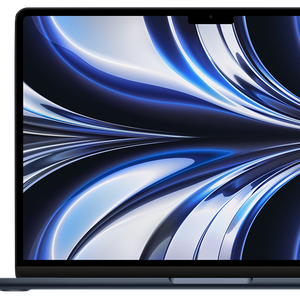
MacBook Air
Apple refreshed the MacBook Air in March 2025, adding a new light Sky Blue color option and a faster M4 chip. The M4 MacBook Air is now nearing the end of its product cycle, and a new model is coming in the first quarter of 2026. Those who want the updated M5 chip should wait to buy the MacBook Air, and now is not a good time to buy. We are only expecting a chip refresh, however, so if you don't care about having the latest chip or find a great deal on an M4 machine, it may still be worth making a purchase now.The current 13-inch and 15-inch MacBook Air models feature M4 chips, with price, display size, and speakers as the only significant differentiating factors between the two sizes. If weight and portability are a concern, the 13-inch MacBook Air may be the better option than the 15-inch MacBook Air, which is larger and heavier.The MacBook Air is Apple's most popular computer. It is the best machine for most people because it is ideal for day-to-day tasks. The exception would be those who need the MacBook Pro for more system intensive apps for video editing, photo editing, and 3D rendering.
Read Full Roundup • Last updated 2 weeks ago
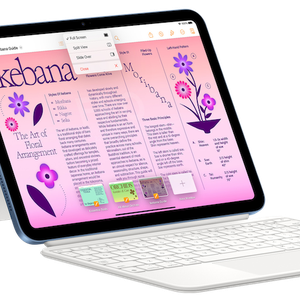
iPad
The iPad is Apple's most affordable and most popular tablet. The 11th-generation model includes an A16 chip, a design with flat sides and a range of color options, an 11-inch display, a USB-C port, and more, with prices that start at $349.Introduced in March 2025, the 11th-generation iPad is nearing the end of its product cycle, and now is not a good time to buy. We recommend waiting for the 12th-generation iPad, which is expected in spring 2026.The iPad 12 will have an upgraded A18 or A19 chip that supports Apple Intelligence, which is a major feature upgrade over the A16 chip in the iPad 11. The A16 does not support Apple Intelligence, so all of the new features that came in iPadOS 18 and iPadOS 26 are unavailable, and it won't get future Apple Intelligence features either.The iPad is Apple's most inexpensive iPad model for those who want a balance of features and affordability, but users looking for a smaller iPad with better specifications should consider the iPad mini, which starts at $499 and has a faster A17 Pro chip. On the other hand, for an iPad with better specifications, there is the $599 iPad Air, which offers a faster M3 chip, features like Stage Manager, and improved display technologies.
Read Full Roundup • Last updated 2 weeks ago
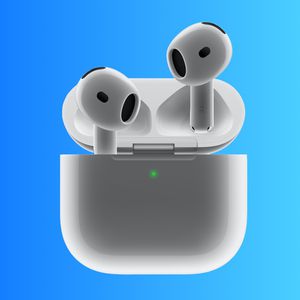
AirPods 4
The AirPods 4 are Apple's latest flagship wireless earbuds, featuring a revised design with a more comfortable fit, force sensors, Adaptive EQ, spatial audio with dynamic head tracking, Active Noise Cancellation for the higher-end model, and more. The AirPods 4 launched in September 2024, so we're still relatively early in the product cycle, and now is a good time to buy. Apple does not refresh the AirPods annually, and often waits several years before updating.The AirPods 4 and AirPods 4 with Active Noise Cancellation (ANC) have the same design, but the version without ANC is priced at $129 and the version with ANC is priced $50 higher at $179. The higher price tag also includes a MagSafe Charging Case with Find My integration, but otherwise, the feature set is the same.$129 is a competitive price for earbuds, and $179 is the same price as the prior-generation AirPods 3. It is worth noting that the H2 chip inside the AirPods 4 provides a seamless and fully integrated pairing and device-switching experience for iPhone, iPad, Mac, and Apple TV users, which more affordable headphones from competing companies are unable to match. The H2 chip also enables features like Adaptive EQ and spatial audio with dynamic head tracking. This means that when used with Apple devices, AirPods seem to be the best option for earbuds when it comes to features.If you are looking for AirPods with more to offer like in-ear silicone tips and better Active Noise Cancellation, check out the AirPods Pro 3 which start at $249. For an even higher-fidelity AirPods experience and an over-ear design, there are the AirPods Max, which start at $549.
Read Full Roundup • Last updated 2 weeks ago
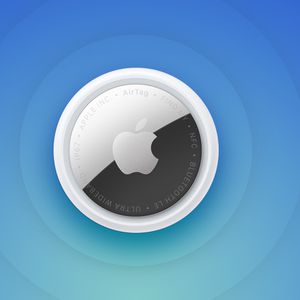
AirTag
Apple first introduced the AirTag in April 2021, and then followed it up with a second-generation version in January 2026. The small circular AirTag is designed to be attached to items like keys and wallets to allow these accessories to be tracked using Bluetooth or Ultra Wideband (UWB) right alongside Apple devices in the Find My app. A single AirTag is priced at $29, and a package of four AirTags can be purchased for $99. Prices have not changed after the release of the AirTag 2.
Read Full Roundup • Last updated 3 weeks ago

watchOS 26
watchOS 26 is the newest version of watchOS, the operating system that runs on the Apple Watch. It introduces an updated design that uses Apple's Liquid Glass material, similar to iOS 26 and macOS 26. You'll find the Liquid Glass design throughout watchOS 26.Apple named this version of the Apple Watch software watchOS 26 instead of watchOS 12 in order to streamline naming across its product lineup. Liquid Glass reflects and refracts its surroundings, just like glass in the real world. The more translucent design elements put focus on content rather than navigation, and controls are designed to fade into the background. Liquid Glass transforms depending on context and content, and it uses real-time rendering to dynamically react to movement to change the way that light reflects off of interface elements. There is a new look for the Smart Stack widgets and the Control Center, plus the Photos watch face now has a Liquid Glass-style time option. Navigation buttons and controls in apps all have the Liquid Glass design, as do incoming notifications.
Read Full Roundup • Last updated 3 weeks ago
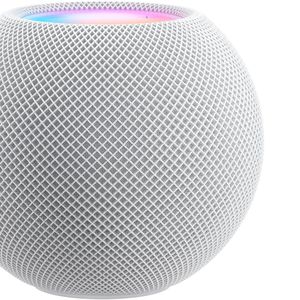
HomePod mini
The HomePod mini is Apple's smaller smart speaker, featuring a round design, the S5 processor, 360-degree audio, and the U1 chip, all for a price tag of $99.Introduced in October 2020, the HomePod mini has now been around for more than four years in Apple's lineup, and rumors suggest that Apple is working on a new model that's set to come out in early 2026. With an update slated for the first few months of 2026, now is not a good time to buy a HomePod mini. We recommend that buyers wait to purchase a HomePod mini if possible.
Read Full Roundup • Last updated 5 weeks ago
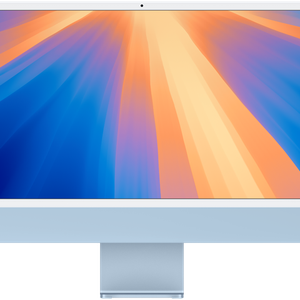
iMac
The iMac is Apple's most iconic desktop machine, featuring a 24-inch display and the latest M4 chip. The iMac is currently Apple's only desktop Mac with a built-in display.Apple last updated the iMac in October 2024, adding a faster M4 chip, new colors, and a handful of other improvements. No new model is expected until 2026, which means now is still an okay time to buy the iMac. We haven't heard specific rumors of an M5 iMac as of yet, but there are hints that Apple is working on a more powerful iMac Pro.Pricing on the iMac starts at $1,299 for the entry-level model with M4 chip. Apple does not have an iMac with a larger display, but there are higher-powered desktop machines available, including the Mac mini, the Mac Studio and the Mac Pro. The Mac Studio and Mac Pro are equipped with faster chips for more intensive system tasks, but they are much more expensive, so the Mac mini may be the best alternative. The Mac mini is priced starting at $599, the Mac Studio is priced starting at $1,999, and the Mac Pro is priced starting at $6,999. Apple refreshed the 24-inch iMac in October 2024, introducing a faster M4 chip with up to 30 percent faster CPU speeds and 20 percent faster GPU speeds for notable speed and efficiency improvements.
Read Full Roundup • Last updated 8 weeks ago
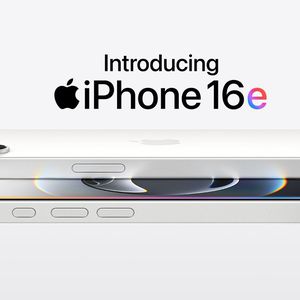
iPhone 16e
The iPhone 16e is Apple's newest iPhone, and it is the most affordable iPhone that Apple sells. At $599, it is more expensive than the prior-generation iPhone SE that it replaces, but it is still $100 cheaper than the entry-level iPhone 16 and $200 cheaper than the entry-level iPhone 17. The iPhone 16e offers many of the same features as the iPhone 16 and iPhone 17 at a more affordable price point.Compared to the iPhone 17, the iPhone 16e has a prior-generation A18 chip, a single-lens rear camera with no Wide-Angle camera, no MagSafe, and Wi-Fi 6 rather than Wi-Fi 7, but if those features don't matter to you, you can save money by opting for the iPhone 16e.Apple's iPhone 16e is going to be refreshed in early 2026, so now is not the best time to buy. If you can wait to get a new device, you should hold out for the iPhone 17e, which is rumored to include MagSafe charging.For dual cameras and better connectivity, the iPhone 16 is available for $699, while the new flagship iPhone 17 is available for $799. Apple also has the super thin iPhone Air available for $999, plus top-of-the-line iPhone 17 Pro and iPhone 17 Pro Max models for $1,099 and $1,199, respectively.
Read Full Roundup • Last updated 9 weeks ago
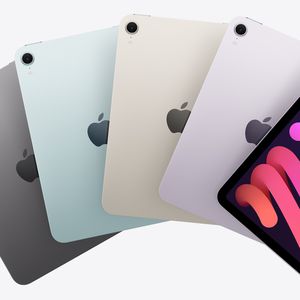
iPad mini
The iPad mini is Apple's smallest tablet device and the latest model features a slim-bezeled design, an A17 Pro chip with Apple Intelligence support, a USB-C port, and Apple Pencil Pro support.Launched in October 2024, the iPad mini is midway through its product cycle, but now is a good time to buy an iPad mini. Apple does not refresh the iPad mini on an annual basis, and we are not expecting a refresh until 2026. Apple is planning to bring OLED display technology to the iPad mini with the next update, along with improved water resistance..While the iPad mini is Apple's smallest iPad, designed for those who want features like an all-screen design and USB-C in the most portable form factor, users who are looking for a more affordable option should consider the 10th-generation iPad. Starting at $329, the iPad offers many iPad mini features, such as Touch ID and Center Stage, but at a lower price that balances functionality and affordability.On the other hand, for an iPad with a larger display, there is the $599 iPad Air. The iPad Air features a Smart Connector on its rear to connect to keyboard cases and its larger, 11-inch display is better for productivity tasks and media consumption. Apple's iPad Pro is the highest-end iPad, and it is much more expensive with a $999 starting price.
Read Full Roundup • Last updated 9 weeks ago
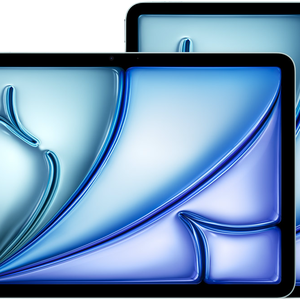
iPad Air
The iPad Air is Apple's mid-range tablet, offering many key iPad features like Touch ID, M3 chip performance, and a range of color options at prices starting at $599. Refreshed in March 2025, the iPad Air is nearing the end of its product cycle and now is not a good time to buy. Rumors suggest that an upgraded M4 version of the iPad Air is launching in early 2026.The iPad Air is the sweet spot in Apple's iPad lineup, but for those who want a smaller tablet, there is the iPad mini, which still offers many of the iPad Air's features in more portable form factor. Users who are looking for a more affordable option should consider the 11th-generation iPad. Starting at $349, the iPad offers several iPad Air features, such as Touch ID and a Retina display, but at a lower price that balances functionality and affordability.On the other hand, for iPad models with more advanced display, improved performance, and high-end features, there is the iPad Pro. The iPad Pro takes the iPad Air's features to the next level, adding an OLED display, up to 16GB of memory, Face ID, ProMotion, an M4 chip, and more. It is aimed at professional users who need more power and higher-end display options.If you're planning to get an iPad Air or another iPad, make sure to check out our iPad deals guide, where we aggregate the best prices of the month.
Read Full Roundup • Last updated 9 weeks ago
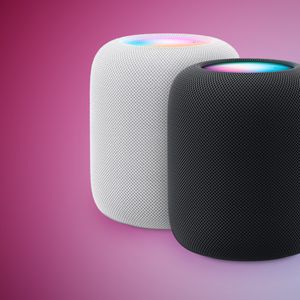
HomePod
The HomePod is Apple's larger, more expensive speaker, sold as a more robust alternative to the HomePod mini. Though it was released in January 2023, the HomePod lineup is not often refreshed, which means now is still a good time to buy the HomePod. There are rumors of a "Command Center" smart home product with speaker coming in 2026, so those interested in that device may want to hold out on purchasing a HomePod, but users interested in a simple speaker with great sound have no reason to wait. The Command Center is not expected to rival the HomePod in sound quality, and it will be a product with a different purpose.At $299, the HomePod is the speaker to choose if you want the highest-quality sound. The HomePod works with the Home app, serves as a Home Hub, and works with other speakers that support AirPlay 2. The $99 HomePod mini is available as an alternative for those who do not need the sound output of the full-size HomePod, or who are looking for a more affordable alternative.To get MacRumors readers the best prices on the HomePod, we have a dedicated HomePod deals guide that highlights the best sales each month.
Read Full Roundup • Last updated 9 weeks ago

CarPlay
At its core, CarPlay is Apple's way of bringing iOS to in-car infotainment systems and dashboards. It's designed to display information from the iPhone on a car's built-in infotainment unit, giving drivers a safe way to make phone calls, send text messages, listen to music, and access Maps -- all of the things a driver might want to do with an iPhone while driving a car.When connected to an in-dash system via the iPhone's Lightning/USB-C port or wirelessly in some cars, CarPlay gives the user in-car access to information stored on the iPhone, like contacts for phone calls and messages, music playlists and controls, Maps for navigation, calendar events, and more. Because CarPlay pulls its information from the iPhone, there's virtually no setup involved. Automobile manufacturers have been building CarPlay support into cars since 2015, but there's also a way to get CarPlay in existing vehicles -- many aftermarket in-dash systems from companies like Sony, Pioneer, Kenwood, and Alpine are compatible with CarPlay and are readily available at reasonable prices. Porsche has even created an aftermarket system for Porsche models dating as far back as the 1960s. More than 800 models in the United States offer CarPlay, which covers most car manufacturers.CarPlay is designed to be largely hands-free, introducing as little driver distraction as possible, and for that reason, it is voice-based and reliant on Apple's personal assistant Siri. Siri is used to perform a range of actions in the car, like placing phone calls, getting directions, sending and reading text messages, playing music, accessing apps, and more.
Read Full Roundup • Last updated 9 weeks ago
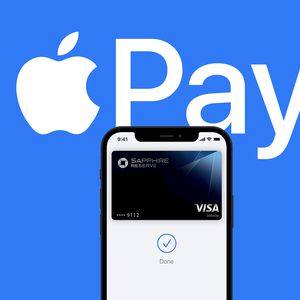
Apple Pay
Apple Pay is Apple's mobile payments service that initially launched in 2014. It is designed to allow iPhone, iPad, Mac, and Apple Watch users across the world to make payments for goods and services directly with credit and debit cards stored in their devices.Apple Pay also lets users make one-tap purchases within apps that have adopted the Apple Pay API and on the web, with this functionality available to iPhones, iPads, and Macs with Touch ID or Face ID and NFC. Apple devices use a "Secure Element" for Apple Pay, keeping customer information secure and private.Apple offers person-to-person Apple Pay payments through the Messages app on the iPhone and Apple Watch, plus there are also in-person payment options. Using Apple Cash, you can send money to friends or family in the United States. Apple also introduced its own credit card, the Apple Card, which has unique perks and benefits and offers deep integration with Apple Pay and the Wallet app.To keep transactions secure, Apple uses a method known as "tokenization," preventing actual credit card numbers from being sent over the air. Apple also secures payments using Touch ID or Face ID on compatible iPhones and continual skin contact on the Apple Watch.
Read Full Roundup • Last updated 9 weeks ago
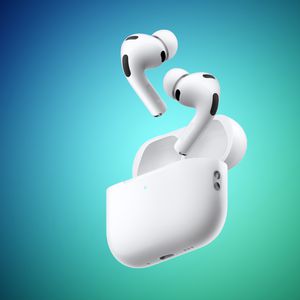
AirPods Pro 3
Introduced in September 2025, the AirPods Pro 3 represent the biggest leap forward in Apple's wireless earbuds lineup in years. Because the AirPods Pro 3 are brand new, now is a good time to buy. It will be at least a year before there's an updated model, and it could be several years. The AirPods Pro 3 are ideal for users who want to get the best wireless earbuds that Apple sells. They have 2x better Active Noise Cancellation than the prior-generation AirPods Pro 2, better audio quality, a revised fit that's meant to improve comfort and stability, Live Translation for in-person conversations, and heart rate sensing for workouts. At $249, the same price as the previous generation, the AirPods Pro 3 are more expensive than the AirPods 4, but offer silicone tips for a tighter fit that blocks out more noise, and better ANC. If you have the original AirPods Pro or even the AirPods Pro 2, the AirPods Pro 3 are worth the upgrade.
Read Full Roundup • Last updated 9 weeks ago

AirPods Max
Introduced in December 2020 and updated in September 2024, the AirPods Max have now been in Apple's product lineup for four years now, but the company does not release new AirPods models on a regular basis. With a recent update to add a USB-C port and new colors, we are not expecting any additional updates to the AirPods Max until 2027.With no new model in the works for 2026, now is a good time to buy the AirPods Max. The latest version has USB-C, but Apple did not make other changes.With a $549 price tag, AirPods Max are more expensive than its direct competitors. For example, the Sony WH-1000XM6 headphones and Bose Quiet Comfort Ultra, which both offer a similar feature set to the AirPods Max, cost $449.
Read Full Roundup • Last updated 9 weeks ago
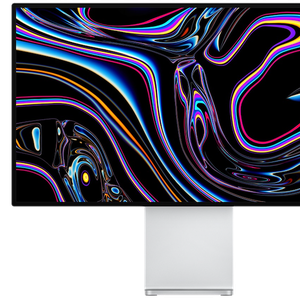
Apple Pro Display XDR
The 2019 Pro Display XDR is Apple's high-end standalone display, offering a high-resolution 6K display that can compete with more expensive reference monitors. The Pro Display XDR is the oldest external display in Apple's lineup, and it is likely nearing the end of its product cycle. Since it is part of a product line with no previous models, we have no clear indications of how long Apple could wait to update it. The display is now six years old, but no new model is coming in the near future, so most buyers may not want to wait for a replacement machine to launch.The Pro Display XDR is less of a priority for Apple because it is an expensive, niche product, and there is no word as of yet on when we might see a refreshed version. Given the age of the display, some buyer's might want to opt for another, more recent option.For those who find the Pro Display XDR to be too expensive, there is the Studio Display, Apple's most affordable external display, which starts at $1,599 and comes with a stand, which may be more appropriate for some customers.Apple stopped making Apple-branded displays after the Apple Thunderbolt Display, which was discontinued in 2016, but in 2019, Apple got back into the display market starting with the Apple Pro Display XDR, a companion display for the high-end high-throughput modular Mac Pro.
Read Full Roundup • Last updated 10 weeks ago
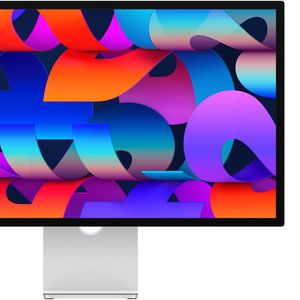
Apple Studio Display
The 2022 Studio Display offers a high-resolution 5K LCD display with a built-in camera, speaker system, and microphone array, in a slim, aluminum design. The Studio Display is priced starting at $1,599, though there are upgrades like height adjustability and a matte nano-texture display.The Studio Display is the most recent external display in Apple's lineup, even though it was released in 2022. It's been three years since the Studio Display launched, and rumors suggest that a new model with miniLED display technology is coming in early 2026. If you can hold off, you should wait to buy the Studio Display. For those that need a display now and don't mind missing out on miniLED, now is still an okay time to buy.The Studio Display is Apple's most affordable external display, but for a larger, more advanced display, there is the Pro Display XDR, which starts at $4,999. If the $1,599 is beyond your budget, you will need to look for an external display from another brand since Apple does not have any lower-cost options.The Studio Display is Apple's first monitor since the 2019 Pro Display XDR, and the first lower-priced display option since the 2016 discontinuation of the Thunderbolt Display.
Read Full Roundup • Last updated 10 weeks ago

Apple Vision Pro
At $3,500, the Vision Pro is prohibitively expensive for many consumers, and reviews have made it clear that it is a device that does not easily fit in to an existing workflow for most people. Some users have even regretted purchasing the headset. The Vision Pro is great for watching movies, viewing 3D videos, and using as a display for a Mac, but some people have struggled to find a day-to-day use for the device.At over 1.3 pounds, the Vision Pro is heavy and fatigue can set in quickly, but Apple improved comfort with the Dual Knit Band that launched alongside the M5 chip. There is also an external battery pack to contend with, and the headset is not easy to travel with, especially with Apple's dedicated Travel Case. The Vision Pro is undoubtedly Apple's most technically advanced product and an incredible feat of engineering that is impressive when it is first viewed, but those considering a purchase should try it at the Apple Store and do a lot of research on what can be done with it before making a purchase. The Vision Pro is excellent for watching movies and consuming content, plus it can be used as a display for a Mac, but it has a limited number of apps and games.Apple refreshed the Apple Vision Pro with an M5 chip in October 2025, which means now is a good time to buy. Another update is not expected for at least two years, and development on a next-generation headset is currently paused.
Read Full Roundup • Last updated 10 weeks ago
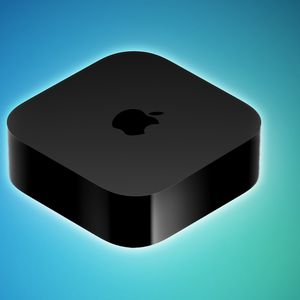
Apple TV
The Apple TV is Apple's set-top box. The latest version of the Apple TV 4K came out in 2022, and it features the A15 Bionic chip, support for HDR10+, and a Siri Remote with a USB-C port for charging. Apple does not update the Apple TV frequently, releasing a new model around every three years.Introduced in October 2022, the third-generation Apple TV 4K is the newest and only Apple TV in the company's lineup. It is three years old, and a new Apple TV is expected in late 2025 or early 2026. Given that a new model is coming soon, now is not a good time to buy an Apple TV, and we recommend waiting for a refresh before you make a purchase.Design wise, the third-generation Apple TV 4K continues to look like the prior-generation version, with a simple black box design that plugs into a television set over HDMI. It is thinner and lighter than the previous version, and no longer requires an internal fan for cooling.
Read Full Roundup • Last updated 10 weeks ago
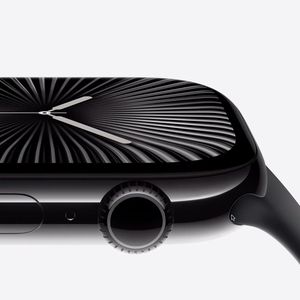
Apple Watch 11
The Apple Watch Series 11 is Apple's newest flagship Apple Watch, released in September 2025. We're not expecting a new model until September 2026, so now is a good time to buy the Apple Watch Series 11.Compared to the Series 10, the Series 11 has slightly longer battery life, more scratch resistant glass for the aluminum model, and a 5G cellular option. There are no other changes, so if you already have a Series 9 or Series 10, it's probably not worth the upgrade. If you have an older Apple Watch model, it's a solid upgrade with the larger screen size introduced with the Series 10 and the longer battery life this year. The Series 11 has all of the health features Apple has introduced in the Apple Watch to date, including heart rate tracking, ECG, blood oxygen monitoring, hypertension alerts, sleep apnea alerts, sleep tracking, and more. For those who want a more rugged model with a larger display, Apple sells the $799 Apple Watch Ultra 3, which has satellite connectivity this year. The Apple Watch SE 3 is also available for those who want a more affordable option. The SE 3 has many of the same features as the Series 11, but it lacks blood oxygen monitoring and ECG.
Read Full Roundup • Last updated 13 weeks ago

iPad Pro
The iPad Pro is Apple's highest-end tablet, and it uses the same M-series chips Apple uses for Macs. The latest iPad Pro models are equipped with the current-generation M5 chip, and feature a super-slim design, Thunderbolt support, up to 2TB storage, and OLED display technology. Apple refreshed the iPad Pro with M5 chip technology in October 2025, which means now is the best time to buy.Pricing on the 11-inch OLED iPad Pro starts at $999, and pricing on the 13-inch OLED iPad Pro starts at $1,299. For those looking for an iPad Pro size that's more affordable, Apple also offers the iPad Air in the same 11-inch and 13-inch sizes, but the iPad Air is thicker and heavier, lacks an OLED display, and has an M3 chip instead of an M5 chip.Apple refreshed the iPad Pro lineup in October 2025, adding a new M5 chip for speed and efficiency improvements. There have been no design changes with this generation, as the iPad Pro got a major design update in 2024.
Read Full Roundup • Last updated 14 weeks ago
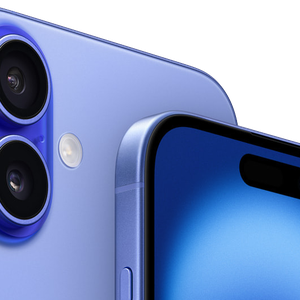
iPhone 16
Introduced in September 2024, the iPhone 16 and iPhone 16 Plus are now Apple's prior-generation phones, sold alongside the higher-end iPhone Air and iPhone 17 lineup as cheaper options. The iPhone 16 models feature an A18 chip that supports Apple Intelligence, a dual-lens camera system that takes great photos, a Camera Control button for quick camera access, and a customizable Action button.Pricing starts at $699, and the iPhone 16 offers a good balance between functionality and price if you don't need Apple's latest and greatest. If you're coming from an iPhone 13 or earlier, the iPhone 16 is an excellent upgrade because you get a faster chip and Apple Intelligence support, but you also get prior model features like Crash Detection and Emergency SOS via satellite. You do miss out on 120Hz ProMotion display technology, Always-On display, and an upgraded 48-megapixel Ultra Wide camera, so the iPhone 17 might be worth considering instead for an extra $100.
Read Full Roundup • Last updated 19 weeks ago
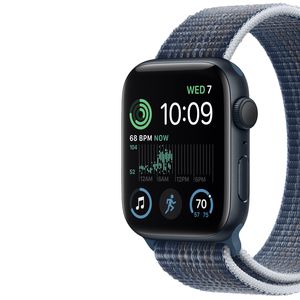
Apple Watch SE 3
Refreshed in September 2025, the Apple Watch SE 3 is Apple's most affordable Apple Watch option. It doesn't have the bells and whistles of the Apple Watch Series 11 or the Apple Watch Ultra 3, as it lacks ECG functionality, hypertension alerts and blood oxygen monitoring, but it otherwise provides much of the key Apple Watch functionality. Apple just updated the Apple Watch SE, which means now is a good time to buy.Apple debuted the Apple Watch SE 3 in September 2025 alongside the Apple Watch Series 11 and the Apple Watch Ultra 3. The Apple Watch SE is designed for people who want a more affordable, fitness-focused Apple Watch option that has all of the essential Apple Watch functionality at a lower price point. Apple also markets it to parents who are looking for a device for their children. The third-generation Apple Watch SE looks identical to the SE 2, with no design changes. It does not support ECG, blood oxygen, or temperature sensing functionality, as those health features require hardware components that Apple did not include in the Apple Watch SE in order to keep costs down.
Read Full Roundup • Last updated 20 weeks ago
Archived Roundups
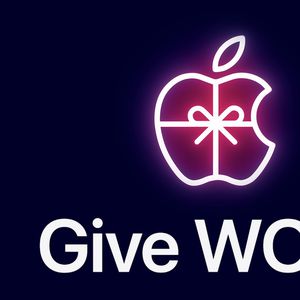
Apple Black Friday
Black Friday, which takes place on November 28 in 2025, is a major shopping holiday in the United States. During the event, retailers across the country drop their prices on thousands of items, hoping to lure shoppers to their stores and websites.Apple products on the cheap are highly desired, and in recent years, retailers have offered some fantastic deals. We'll be gathering up a list of all the retailers, both online and in-store, offering discounts on AirPods, iPhones, iPads, iPods, MacBooks, HomePod mini, Beats headphones, Apple accessories, and more.This roundup will be updated often as Black Friday approaches. We'll highlight the very best deals that are being offered this year so MacRumors readers know where to go for the best discounts. If you spot a good deal or have a site offering a Black Friday discount, make sure to send us an email at tips@macrumors.com.It's important to note that many of the Black Friday deals we'll be listing below will be limited, especially those that are "doorbusters," or specific sales designed to draw people into a store. These kinds of deals tend to go quickly as stores have a limited amount of supply, so in some cases, it's best to take advantage of a deal as early as possible.
Read Full Roundup • Last updated 01/2026
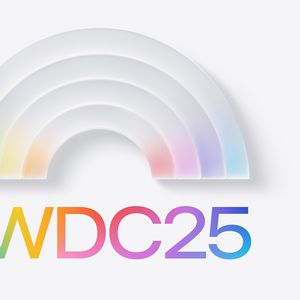
WWDC 2025
Apple's 36th annual Worldwide Developers Conference began on Monday, June 9, 2025, and ended on Friday, June 13. Apple kicked things off with a keynote event on Monday, June 9 at 10:00 a.m. Pacific Time.WWDC 2025 featured online sessions and labs so that developers worldwide could learn about the new software features and how to incorporate those features into their apps. Both the keynote and the online sessions were available on the Apple Developer app, Apple website, and YouTube. WWDC has been a free, online event since 2020, and the format allows developers in many countries to interface with Apple engineers for app help.While WWDC 2025 is an online event, Apple included a special in-person component for select developers, students, and members of the media. The in-person WWDC event took place on June 9 at the Apple Park campus in Cupertino, California. Invited attendees were able to watch the keynote and Platforms State of the Union at Apple Park, as well as meet with Apple employees. Current Apple Developer Program members, Apple Entrepreneur Camp alumni, prior Swift Student Challenge winners, and current Apple Developer Enterprise Program members were able to enter to attend the June 9 Apple Park event, and Apple selected participants through a random lottery.
Read Full Roundup • Last updated 06/2025
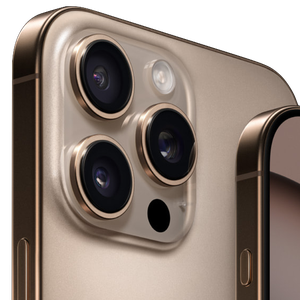
iPhone 16 Pro
The iPhone 16 Pro and iPhone 16 Pro Max were Apple's high-end flagship iPhones from 2024, sold alongside the iPhone 16 and iPhone 16 Plus. Alongside the launch of the iPhone 17 lineup in September 2025, the iPhone 16 Pro and Pro Max have been discontinued..While Apple has discontinued these models, you may still be able to find some through resellers at discounted pricing. The 6.3-inch iPhone 16 Pro and 6.9-inch iPhone 16 Pro Max will still last for many years to come, but there simply isn't room in Apple's lineup to continue selling them at price points between the latest flagships and the cheaper iPhone 16 and iPhone 16e options.The iPhone 16 Pro was priced starting at $999, while the iPhone 16 Pro Max was priced at $1,199 and up. The Pro Max has long been Apple's most expensive iPhone, but it comes with a longer lasting battery, a bigger display, and a larger 256GB starting storage capacity. These were Apple's most advanced iPhone models for 2024, with all of the latest bells and whistles. Apple designs these for pros, and they had the fastest chips and the best camera technology, though they've naturally been surpassed by the new iPhone 17 Pro and Pro Max.
Read Full Roundup • Last updated 09/2025
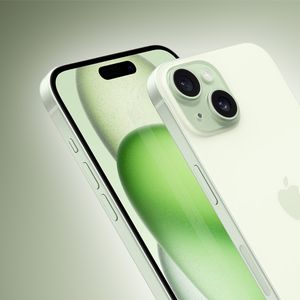
iPhone 15
Introduced in September 2023, the iPhone 15 and 15 Plus continued to be sold alongside the iPhone 16 models as lower-priced devices. As of the launch of the iPhone 17 lineup in September 2025, the iPhone 15 and 15 Plus have been discontinued.You may still be able to find an iPhone 15 or 15 Plus through resellers, but at this point it is probably worth opting for the current entry-level iPhone 16e with a faster chip.Choosing an iPhone is a major decision, so we have some buyer's guides that walk you through choosing the best device for you, and you'll also want to check out our iPhone deals post to get the best prices. The iPhone 15 and iPhone 15 Plus are Apple's consumer-focused flagship devices from 2023 with prices starting at $699 following a $100 price cut with the introduction of the iPhone 16 lineup in September 2024.
Read Full Roundup • Last updated 09/2025
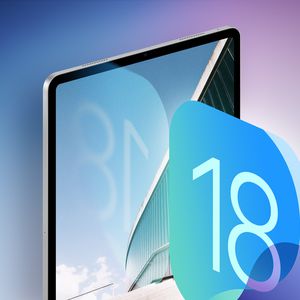
iPadOS 18
iPadOS 18 is the newest version of iPadOS, the software that runs on the iPad. iPadOS 18 incorporates many of the same features that are in iOS 18, including all of the new AI capabilities that Apple has in store, but there are also some notable iPad-specific changes. Both iOS 18 and iPadOS 18 are built around Apple Intelligence, aka AI. Apple Intelligence is deeply integrated into iOS 18, iPadOS 18, and macOS Sequoia. Apple Intelligence improves writing across the operating system, makes Siri much smarter, and allows for multiple forms of content generation. Writing Tools are available across most apps that support text for rewriting, polishing, proofreading, and summarizing content. You can change your tone, make your writing more concise, and ensure there are no spelling or grammar errors. A new Image Playground app lets you generate images using prompts or Apple's suggestions and themes. You can incorporate pictures of your friends and family to make all kinds of fun custom photos in styles that include Animation, Illustration, or Sketch. Image Playground image generation is built into Messages, Notes, and other apps. There's a Genmoji feature in the Messages app that lets you create any emoji you want without being limited to the built-in options. You can enter a short description of what you want, even including your friends, and Apple makes it for you.
Read Full Roundup • Last updated 09/2025

watchOS 11
watchOS 11 is the newest version of watchOS, the operating system that runs on the Apple Watch. As with every new watchOS update, watchOS 11 introduces a range of new health, fitness, and communication features. The Smart Stack gains new widgets in watchOS 11, including Shazam, Photos, and Distance. The Smart Stack can suggest widgets based on time, date, location, and daily routines, presenting the content that is needed most at any given time. Interactive widgets let users access app features directly from the Smart Stack, and the Smart Stack also now supports Live Activities.Check In is available on the Apple Watch, including during workouts. Users who are going to the gym or heading out on a run can start the Check In process from the Workout app so a friend or family member can keep an eye out for their workout to end. Check In on Apple Watch works from the Messages app, too. A Vitals app lets users view and get context about key health metrics that are measured during sleep, including heart rate, respiratory rate, wrist temperature, sleep duration, and blood oxygen. The Apple Watch analyzes these metrics for the Vitals app and provides a daily report on whether the metrics are out of a typical range for each wearer. When two or more metrics are out of their standard range, the Vitals app can provide a notification and insight into how the change might be linked to alcohol consumption, illness, and other factors like elevation changes.
Read Full Roundup • Last updated 09/2025
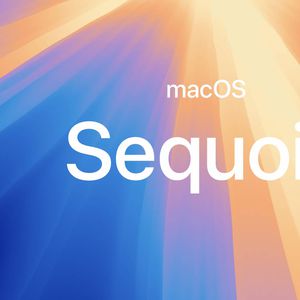
macOS Sequoia
macOS Sequoia is the latest version of macOS, the operating system that runs on the Mac. It is named after the sequoia tree, which is a redwood that California is known for. macOS Sequoia, like iOS 18, is built around Apple Intelligence, which is what Apple calls its AI features. Apple Intelligence includes a much more capable version of Siri and has content generation tools for doing everything from improving writing to creating images from prompts. Writing Tools are available across Messages, Mail, Pages, and more for rewriting, polishing, proofreading, and summarizing text, including emails, notes, texts, and other documents. macOS Sequoia has an Image Playground app that can be used for generating images using prompts or Apple's suggestions and themes. You can incorporate pictures of your friends and family to make all kinds of fun custom photos in styles that include Animation, Illustration, or Sketch. Image Playground image generation is also built into Messages, Notes, and other apps. In the Messages app, there's a Genmoji tool for creating any emoji without being limited to the built-in options. You can enter a short description of the emoji you want to create, and your Mac makes it for you. The Photos app has a Clean Up tool for removing unwanted objects from the background of an image, and there's also an option to create custom Memories by typing in a description and having Apple Intelligence choose appropriate photos and videos for you.
Read Full Roundup • Last updated 09/2025

iOS 18
iOS 18 is the next-generation version of iOS, released in September 2024. iOS 18 is built around Apple Intelligence, which is what Apple is calling its AI feature set that's deeply integrated into iOS. Apple Intelligence combines generative AI with personal context, and Apple calls it "AI for the rest of us."Apple Intelligence improves writing across the operating system, makes Siri much smarter, and allows for multiple forms of content generation. A set of Writing Tools are available across all apps for rewriting, polishing, proofreading, and summarizing text. You can change your tone, make your writing more concise, and ensure there are no spelling or grammar errors. An Image Playground app lets you generate images using prompts or Apple's suggestions and themes. You can incorporate pictures of your friends and family to make all kinds of fun custom photos in styles that include Animation, Illustration, or Sketch. Image Playground image generation is built into Messages, Notes, and other apps. There's a Genmoji feature in the Messages app that lets you create any emoji you want without being limited to the built-in options. You can enter a short description of what you want, even including your friends, and Apple Intelligence makes it for you.
Read Full Roundup • Last updated 09/2025
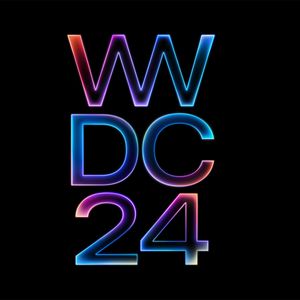
WWDC 2024
The 35th annual Worldwide Developers Conference took place from June 10 to June 14, with an introductory keynote that was held on Monday, June 10 at 10:00 a.m. Pacific Time to debut new software. Apple announced iOS 18, iPadOS 18, macOS 15 Sequoia, tvOS 18, watchOS 11, and visionOS 2, with no new hardware products.As with WWDC events since 2020, WWDC 2024 was an online event that was open to all developers at no cost. Apple did, however, hold a special event for select developers, students, and members of the media.Developers and student attendees were able to watch the keynote and State of the Union presentations at Apple Park, as well as meet Apple employees and attend the Apple Design Awards.Note: See an error in this roundup or want to offer feedback? Send us an email here.
Read Full Roundup • Last updated 06/2024
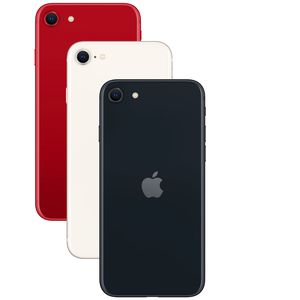
iPhone SE
Apple has retired and discontinued the iPhone SE, and it is no longer for sale. The iPhone SE has been replaced by the iPhone 16e, a $599 iPhone that is being sold alongside the iPhone 16, iPhone 16 Plus, iPhone 16 Pro, and iPhone 16 Pro Max. The iPhone 16e features a 6.1-inch OLED display with Face ID, a single-lens 48-megapixel rear camera, a USB-C port, and an A18 chip that supports Apple Intelligence. The transition from iPhone SE to iPhone 16e marks the end of several prior-generation iPhone features, such as Touch ID, a smaller iPhone form factor, LCD displays, and Lightning ports. More information on the iPhone 16e can be found in the iPhone 16e roundup.The iPhone SE is Apple's lowest-priced iPhone, meant to be an affordable alternative to the flagship devices. It has been around since 2016, and in 2022, Apple introduced the third-generation version, with an updated $429 price point, improved A-series chip, and 5G connectivity.
Read Full Roundup • Last updated 02/2025
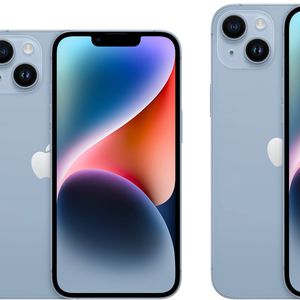
iPhone 14
The iPhone 14 is a prior-generation iPhone from 2022, and it is two years older than the flagship iPhone 16 models. You'll save $200 choosing the iPhone 14 over the iPhone 16, but it's probably not worth it at this point given the many advances Apple has introduced in the last few years.Compared to the iPhone 16, the iPhone 14 lacks the latest technology, offering shorter battery life, less advanced camera technology, a slower chip, the Dynamic Island, a USB-C port, Ultra Wideband 2, and more. If you're looking to get a good deal on an iPhone, we track all of the best iPhone sales on iPhone 14, iPhone 15, and iPhone 16 models. The iPhone 14 and iPhone 14 Plus are prior-generation flagship iPhone, which were initially sold alongside the iPhone 14 Pro and iPhone 14 Pro Max, both of which have been discontinued. The iPhone 14 and iPhone 14 Plus are available as lower-cost alternatives alongside the iPhone 16 and iPhone 15 lineups.
Read Full Roundup • Last updated 02/2025

Apple Car
Apple in February 2024 canceled the Apple Car project and has ceased all work on an autonomous, electric vehicle. Apple no longer intends to come out with an Apple Car. The approximately 2,000 employees working on the car were reassigned to Apple's generative AI team, laid off, or sent to other divisions within the company. A look back at the Apple Car's history and the many changes in leadership and scope can be found in our Apple Car history guide. With the car project canceled, Apple's focus now turns to AI and products like the Vision Pro.In 2014, Apple began working on "Project Titan," with more than 1,000 car experts and engineers developing an electric vehicle with limited self-driving capabilities at a secret location near the company's Cupertino headquarters.
Read Full Roundup • Last updated 03/2024
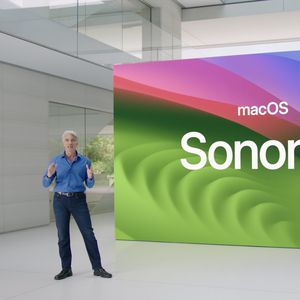
macOS Sonoma
With the release of macOS Sequoia in September 2024, macOS Sonoma is no longer the most recent major version of Apple's Mac operating system. While Apple may continue to release minor security updates to macOS Sonoma for users who don't wish to immediately upgrade or whose machines are not compatible with Sequoia, the roundup below is no longer being updated.macOS Sonoma is the newest version of macOS, the operating system that runs on the Mac. The update is named after Sonoma, an area in Northern California's "Wine Country" that is known for its wineries.With the update, Apple brings interactive widgets to the desktop, moving them out of the Today view and making them both more prominent and more useful. Widgets can be found in the widget gallery, and placed in convenient locations right on the desktop. When not in use, widgets are designed to blend seamlessly into the wallpaper.Widgets are interactive, and can be used to do things like check off reminders, play and pause media, control smart home devices, take notes, and more, all without having to open up the associated app. With Continuity, you can also see and interact with your iPhone widgets on your Mac.
Read Full Roundup • Last updated 09/2024
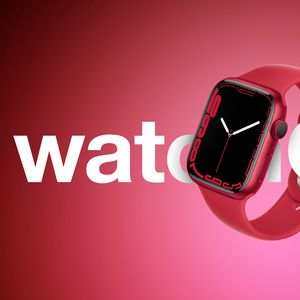
watchOS 10
With the release of watchOS 11 in September 2024, watchOS 10 is no longer the most recent major version of Apple's iPhone operating system. While Apple may continue to release minor security updates to watchOS 10 for users who don't wish to immediately upgrade, the roundup below is no longer being updated.watchOS 10 is the newest version of watchOS, the operating system that runs on the Apple Watch. Introduced at WWDC in June 2023, watchOS 10 saw a public release on September 18 just ahead of the launch of new Apple Watch models.The watchOS 10 update overhauls the Apple Watch interface with a focus on widgets to get you access to more information at a glance. There are also redesigns to important apps, updated watch faces, new workout features, and more. watchOS 10 adds the Smart Stack, which houses a selection of widgets that display the information you need most. The Apple Watch learns over time which apps you use and when, customizing what you see. At the start of the day, for example, you might see the daily weather, followed by your first event of the day. Smart Stack is easily accessible with a turn of the Digital Crown, and you can flip through all of the available widgets by continuing to scroll.
Read Full Roundup • Last updated 09/2024
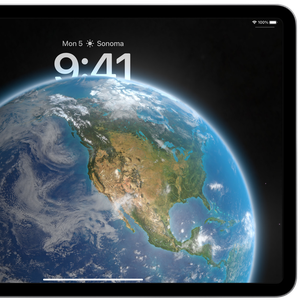
iPadOS 17
With the release of iPadOS 18 in September 2024, iPadOS 17 is no longer the most recent major version of Apple's iPad operating system. While Apple may continue to release minor security updates to iPadOS 17 for users who don't wish to immediately upgrade, the roundup below is no longer being updated.iPadOS 17 is the latest version of iPadOS, the operating system that runs on the iPad. iPadOS 17 was released on September 18, 2023. Almost all of the new features that are available in iOS 17 are also available on the iPad, and iOS 17 and iPadOS 17 share many similarities. All of the updates to FaceTime and Messages can be found on the iPad, as well as features like improved autocorrect, interactive widgets, support for shared passwords and AirTags, updates to AirPods, and more.For a complete overview of what's new in iPadOS 17, you'll want to take a look at our separate iOS 17 roundup, but the iOS features that are exclusive to the bigger screen are listed here.
Read Full Roundup • Last updated 09/2024
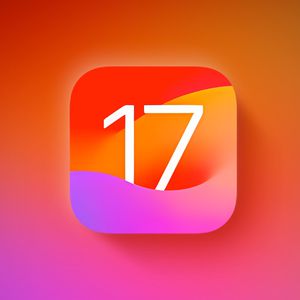
iOS 17
With the release of iOS 18 in September 2024, iOS 17 is no longer the most recent major version of Apple's iPhone operating system. While Apple may continue to release minor security updates to iOS 17 for users who don't wish to immediately upgrade, the roundup below is no longer being updated.iOS 17 is the newest version of iOS, the operating system that is designed to run on the iPhone. Previewed in June, iOS 17 is available now on the iPhone XR/XS and later. There are new features for Phone, FaceTime, and Messages, along with small improvements for other apps and an all new app that's coming later this year for journaling.Apple focused on communication, and overhauled the Phone app. You can now create customized Contact Posters that people see when you call them. You can choose a photo or a Memoji, select a font, a font color, and more. Contact Posters are available for the Phone app and also for third-party apps. When someone leaves a voicemail, the Live Voicemail feature shows a real-time transcription of the message on the Lock Screen as the person is speaking. Based on what's being said, you can choose to pick up the phone. Calls marked as spam by carriers are instantly declined and won't appear as Live Voicemail.
Read Full Roundup • Last updated 09/2024
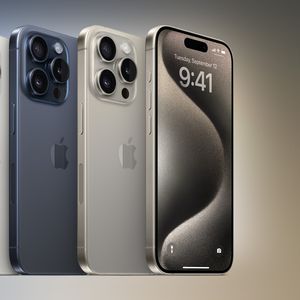
iPhone 15 Pro
Apple discontinued the iPhone 15 Pro and Pro Max in September 2024 following the introduction of the iPhone 16 lineup. With the launch of the new iPhones, Apple removed the previous-generation Pro models from sale, while the standard iPhone 15 and iPhone 14 models slid down the pricing tiers as cheaper options. While Apple is no longer offering the iPhone 15 Pro for sale, it may still be available from third-party vendors. The roundup below is no longer being updated.Apple in September 2023 introduced the iPhone 15 Pro and iPhone 15 Pro Max, its new high-end flagship smartphones that are being sold alongside the iPhone 15 and iPhone 15 Plus. The iPhone 15 Pro models have an expanded feature set not available in the standard iPhone 15 devices, including more advanced camera technology, a better display, a faster A17 chip, and more. Available in the same 6.1- and 6.7-inch sizes as the iPhone 14 Pro models, the iPhone 15 Pro models have a similar design, but there are some notable changes. Rather than stainless steel, Apple is using a frame made out of a new titanium alloy that's also used for spacecraft, and there are new titanium colors including white, black, natural, and blue. Titanium is lighter than stainless steel so the iPhone 15 Pro models weigh less than the iPhone 14 Pro models.The titanium has a new matte, brush texture and it is accompanied by an aluminum internal frame that improves thermal dissipation and the repairability of the back glass. Apple also tweaked the design, so the frame has more contoured edges and the display bezels are much thinner. The front of the iPhone continues to be protected by Apple's Ceramic Shield material, which it says is the toughest glass used in a smartphone.
Read Full Roundup • Last updated 09/2024
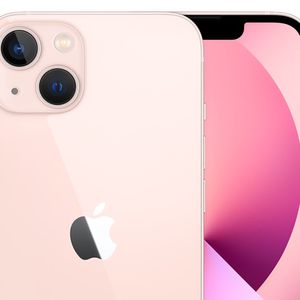
iPhone 13
Apple discontinued the iPhone 13 in September 2024 following the introduction of the iPhone 16 lineup. With the launch of the new iPhones, Apple's older models from the iPhone 15 and iPhone 14 models slid down the pricing tiers and the iPhone 13 was removed from the lineup. While Apple is no longer offering the iPhone 13 for sale, it may still be available from third-party vendors. The roundup below is no longer being updated.The iPhone 13 is Apple's prior-generation iPhone from 2021, and it is two years older than the flagship iPhone 15 models. You'll save $200 choosing the iPhone 13 over the iPhone 15, but it's probably not worth it at this point given the many advances Apple has introduced in the last few years.Compared to the iPhone 15, the iPhone 13 lacks Emergency SOS via satellite and Crash Detection, two important safety features that are worth upgrading for, plus it has lower battery life, less advanced camera technology, a slower chip, the Dynamic Island, a USB-C port, Ultra Wideband 2, and more. If you're looking to get a good deal on an iPhone, we track all of the best iPhone sales on iPhone 13, iPhone 14, and iPhone 15 models.
Read Full Roundup • Last updated 09/2024
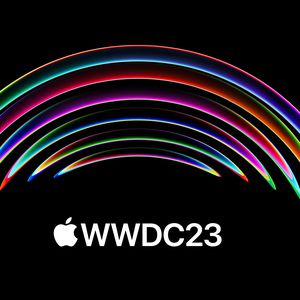
WWDC 2023
Apple's 34th Worldwide Developers Conference took place the week of June 5 to June 9, 2023, and it began with a keynote event at 10:00 a.m. Pacific Time on Monday, June 5.As with the 2022 conference, WWDC 2023 was primarily an online event, although select developers, students, and members of the media were been invited to Apple Park on June 5 to watch the keynote and State of the Union presentation and meet with other attendees and Apple employees.Note: See an error in this roundup or want to offer feedback? Send us an email here.
Read Full Roundup • Last updated 09/2023
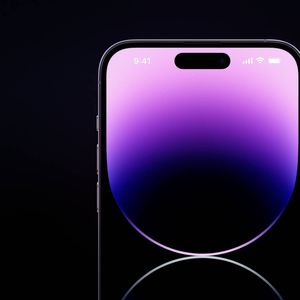
iPhone 14 Pro
Apple discontinued the iPhone 14 Pro in September 2023 following the introduction of the iPhone 15 lineup. With the launch of the new iPhones, Apple removed the previous-generation Pro models from sale, while the standard iPhone 14 and iPhone 13 models slid down the pricing tiers as cheaper options. While Apple is no longer offering the iPhone 14 Pro for sale, it may still be available from third-party vendors. The roundup below is no longer being updated.Released in September 2022, the iPhone 14 Pro and iPhone 14 Pro Max are Apple's current flagship iPhones, sold alongside the iPhone 14 and iPhone 14 Plus. Now is not the best time to buy an iPhone 14 Pro or Pro Max because the iPhone 15 Pro and Pro Max are coming in September 2023. If having the newest technology is important to you, you should wait to buy an iPhone. The iPhone 15 Pro models will feature upgraded camera technology, USB-C charging, and a faster A-series chip, all of which is worth holding out for. If you're not interested in the latest technology, now is an okay time to buy, but you may want to instead opt for the iPhone 14 to save some money. It doesn't have the Dynamic Island and the camera isn't quite as good, but it is several hundred dollars cheaper.
Read Full Roundup • Last updated 09/2023
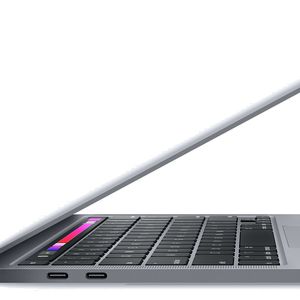
MacBook Pro 13"
The 13-inch MacBook Pro offers the same M2 chip as the redesigned MacBook Air, but with active cooling through built-in fans and additional features like the Touch Bar.Announced in June 2022, the MacBook Pro is approaching the end of its product cycle. The previous, M1-based MacBook Pro was released in November 2020, but before that, Apple updated the MacBook Pro annually. Rumors suggest that a new version of the 13-inch MacBook Pro could come out sometime 2024, so with months to wait, now is a good time to buy.Priced starting at $1,299, the M2 MacBook Pro is $100 more than the M2 MacBook Air that was released at the same time. If you do not need the M2 Macbook Pro's added performance and features, it is worth opting for the M2 MacBook Air save money and get the latest design. Alternatively, if you need even more performance and additional features, there is the the $1,999 14-inch MacBook Pro, which features the M2 Pro chip, and if you want a larger-sized screen, there is the $1,299 15-inch MacBook Air.If you're considering a MacBook Pro, we have a dedicated Deals guide that lists the best prices and discounts that we've seen this month.
Read Full Roundup • Last updated 12/2023
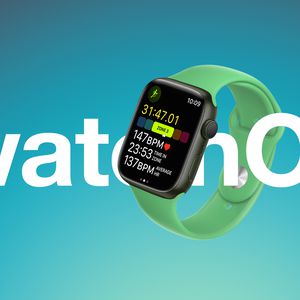
watchOS 9
With the release of watchOS 10 in September 2023, watchOS 9 is no longer the most recent major version of the Apple Watch operating system and users with Apple Watch Series 4 and later should update to watchOS 10. The roundup below is no longer being updated.watchOS 9 is the current version of the watchOS operating system that runs on the Apple Watch, replacing watchOS 8 upon its release in September 2022. watchOS 9 was previewed at the 2022 Worldwide Developers Conference in June. The watchOS 9 update features design improvements, new watch faces, and new apps, with a particular focus on updated health and fitness capabilities. There are four new watch faces that are available. Lunar depicts the relationship between the Gregorian calendar and various lunar calendars, while Playtime features fun, animated and personified numbers created in collaboration with artist Joi Fulton. Metropolitan is a classic type-driven watch face with a style that changes as the digital crown is turned, and Astronomy is a revamped version of the original astronomy watch face with a remastered design and new star map and cloud data.
Read Full Roundup • Last updated 09/2023
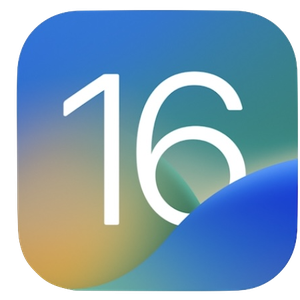
iOS 16
With the release of iOS 17 in September 2023, iOS 16 is no longer the most recent major version of Apple's iPhone operating system. While Apple may continue to release minor security updates to iOS 16 for devices such as the iPhone 8, iPhone 8 Plus, and iPhone X that are not compatible with iOS 17, the roundup below is no longer being updated.Apple in June 2022 previewed the new version of the iPhone's operating system, iOS 16. iOS 16 introduces redesigned, customizable Lock Screens with widgets, the ability to edit and delete messages, improved Focus modes, an iCloud Shared Photos Library for families, major improvements for apps like Mail, Home, and Wallet, and much more.The Lock Screen is fully redesigned in iOS 16. The new Lock Screen design is highly customizable with a wide range of options for widgets, typefaces, a multilayered effect for images, and animated wallpapers. Users can create multiple different Lock Screens linked to Focus modes.Notifications now roll up from the bottom of the screen to be less invasive. Live Activities help users keep track of current events, such as a workout or a sports game, in real-time directly from the Lock Screen. Focus modes are improved with easier setup, Focus filters, linking to individual Lock Screens and Apple Watch faces, and more configuration options.
Read Full Roundup • Last updated 09/2023
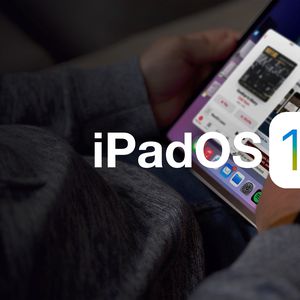
iPadOS 16
With the release of iPadOS 17 in September 2023, iPadOS 16 is no longer the most recent major version of Apple's iPad operating system. While Apple may continue to release minor security updates to iPadOS 16 for devices such as the fifth-generation iPad and the first-generation 12.9-inch iPad Pro that are not compatible with iPadOS 17, the roundup below is no longer being updated.Apple in June 2022 previewed the latest version of the iPad's operating system, iPadOS 16. iPadOS 16 introduces the Weather app on iPad for the first time, a host of new collaboration features, updates to apps like Notes, Mail, and Messages, a series of "pro" features, including an entirely new multitasking experience, full external display support, display zoom, and much more.The Weather app comes to the iPad for the first time in iPadOS 16, offering a new system of forecast modules for more detailed information such as hourly temperature and precipitation over a 10 day period.The Notes app can improve handwritten notes by making words straighter and neater, and users can Scribble with the Apple Pencil while using Dictation for the first time. It is possible to insert shapes like boxes and arrows into the drawing area using a finger or the Apple Pencil, and also add typed text in editable boxes and rotate images within the drawing area. In addition, screenshots can be added to Quick Notes for the first time.
Read Full Roundup • Last updated 09/2023

macOS Ventura
With the release of macOS Sonoma in September 2023, macOS Ventura is no longer the most recent major version of Apple's Mac operating system. While Apple may continue to release minor security updates to Ventura for Macs such as the 2017 MacBook Pro, iMac, and 12-inch MacBook that are not compatible with Sonoma, the roundup below is no longer being updated.Introduced at WWDC 2022, macOS Ventura is the current version of macOS, the operating system that runs on the Mac. macOS Ventura is a significant update that introduces a new multitasking experience, overhauls multiple apps, and adds updated capabilities across the platform. With Stage Manager, Mac users have an all-new way of focusing on a task while leaving other apps at the ready. Stage Manager puts your main app front and center on the desktop, and tucks your other apps at the side for quick access when they're needed. Apps and windows can be grouped together, so you can set up your desktop in the right way for your workflow. Stage Manager integrates with both Mission Control and Spaces, and it's simple to click right back over to the desktop.The new Continuity Camera feature does away with the need for a poor quality built-in Mac camera because it allows you to use your iPhone as a webcam for your Mac. The iPhone can be positioned on top of the Mac using a stand, and it is designed to connect automatically. There's a Desk View that uses the Ultra Wide lens to show off your desk if you need to demo something, along with Center Stage and Studio Light, an effect that illuminates your face while dimming the background.
Read Full Roundup • Last updated 09/2023
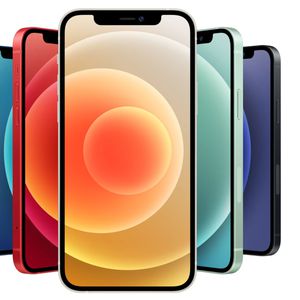
iPhone 12
Apple discontinued the iPhone 12 in September 2023 following the introduction of the iPhone 15 lineup. With the launch of the new iPhones, Apple's older models from the iPhone 14 and iPhone 13 models slid down the pricing tiers and the iPhone 12 was removed from the lineup. While Apple is no longer offering the iPhone 12 for sale, it may still be available from third-party vendors. The roundup below is no longer being updated.First introduced in 2020, the iPhone 12 is nearly three years old. It is only worth considering if you are looking for an affordable iPhone option but are not a fan of the Touch ID feature of the lower-cost iPhone SE. Priced starting at $599, the iPhone 12 is Apple's cheapest iPhone with Face ID and the all-display notch design. It is two years behind the current flagship iPhone 14 models and has a slower chip than the prior-generation iPhone 13. If you want the latest iPhone, don't go with the iPhone 12, but if you just need something affordable with Face ID, it's a good pick. The iPhone 12 will likely be discontinued in 2023 with the release of the iPhone 15 models, and the iPhone 13 will drop in price, so it may be worth waiting for that upgrade if you're not in imminent need of a new phone.
Read Full Roundup • Last updated 09/2023
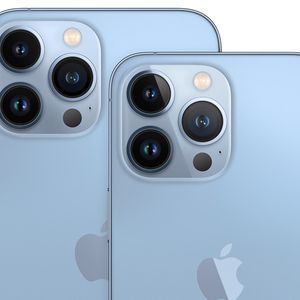
iPhone 13 Pro
Introduced on September 14, 2021, the iPhone 13 Pro and iPhone 13 Pro Max were Apple's flagship iPhones for 2021, but have since been replaced by the iPhone 14 Pro and iPhone 14 Pro Max. Apple has discontinued the iPhone 13 Pro models and is no longer selling them, but they may be available on its refurbished site and from third-party retailers while supplies last. The 6.1-inch iPhone 13 Pro is the successor to the iPhone 12 Pro, while the 6.7-inch iPhone 13 Pro Max is the replacement for the iPhone 12 Pro Max. Both of the new iPhone 13 Pro models are nearly identical in design to the iPhone 12 Pro models, featuring flat edges, a stainless steel frame, a textured matte glass back, and a slight increase in thickness (7.65mm). The iPhone 13 Pro models are available in Silver, Gold, Sierra Blue, Graphite, and Alpine Green. Both of the new models feature OLED Super Retina XDR Displays that support ProMotion technology with adaptive refresh rates ranging from 10Hz up to 120Hz, much like the iPad Pro models. The displays are up to 25 percent brighter outdoors.The iPhone 13 Pro has a 2532x1170 resolution with 460 pixels per inch, while the iPhone 13 Pro Max has a 2778x1284 resolution with 458 pixels per inch. Both iPhones feature 1200 nits max brightness for HDR, along with True Tone to match the color temperature of the display to the ambient light, Wide Color for rich, vivid hues, and Haptic Touch for feedback.
Read Full Roundup • Last updated 05/2023

WWDC 2022
Apple's 33nd Worldwide Developers Conference was a digital-only event for the third year in a row, though Apple did hold an in-person viewing event for a select number of developers and members of the media.The virtual WWDC event kicked off on June 6, and it was free for everyone. The online event gave developers around the world access to future versions of iOS, iPadOS, macOS, watchOS, and tvOS, as well as the opportunity to engage with Apple engineers through sessions and labs.Apple's keynote event took place on Monday, June 6 at 10:00 a.m. Pacific Time. The event was streamed directly from Apple Park and can be replayed on Apple.com, the Apple Developer app, the Apple Developer website, the Apple TV app on the Apple TV, or YouTube.
Read Full Roundup • Last updated 09/2022
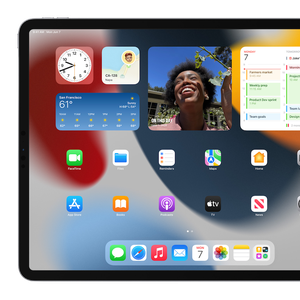
iPadOS 15
Apple in June 2021 introduced iPadOS 15, which went on to be released on September 20, 2021. iPadOS 15 introduced a new Home Screen design with integrated widgets and the App Library, system-wide fast note-taking with Quick Note, new features for FaceTime calls, a redesigned Safari experience, new tools to reduce distractions, and more.Multitasking was redesigned in iPadOS 15 with a new multitasking menu at the top of apps, letting users enter Split View or Slide Over more easily, quick access to the Home Screen when using Split View, a new shelf allows for easier multitasking with apps that have multiple windows, and more, making it easier to work with multiple apps at once.Users can now place widgets among apps on the iPad's Home Screen pages, and there is a new, bigger widget option. Apple is also bringing the App Library to the iPad for effortless organization of apps, accessible directly from the dock.Quick Note is a new iPad feature that offers a fast and easy way to take notes anywhere across the system. Users can bring up Quick Note anywhere to jot down a thought and add links, providing an easy way to get back to exactly what they were looking at. In the Notes app, there are new Tags, a Tag Browser, and tag-based Smart Folders. Shared notes now feature mentions to notify collaborators and an Activity view.
Read Full Roundup • Last updated 10/2022

macOS Monterey
macOS 12 Monterey, unveiled in June 2021 at WWDC, is a previous version macOS that was released on October 25, 2021. Compared to macOS Big Sur, macOS Monterey is a smaller update, but there are still many notable new features that improve the Mac experience.Universal Control is perhaps one of the biggest updates, allowing a single mouse, trackpad, and keyboard to be used across multiple Macs and also the iPad for moving content between devices. There's also a new AirPlay to Mac option for AirPlaying movies, games, photos, and more from the iPhone or iPad to the Mac, plus the Mac can be used as a speaker for multiroom audio.Safari has an optional new tab bar design that better blends into the background and Tab Groups for grouping your open tabs together to make it easy to swap between different tasks without having to lose your open tabs. Tab Groups sync across all of your devices and can be shared.FaceTime supports spatial audio so voices sound like they're coming from where the person is positioned on the screen, and Voice Isolation cuts out background noise. There's also a Wide Spectrum sound mode for when there are multiple call participants in the same room. Portrait Mode blurs out the background behind you, much like the iPhone photos feature.
Read Full Roundup • Last updated 10/2022

iPhone 11
Apple unveiled the iPhone 11 in September 2019, and it was available as a low-cost option for several years after that, but the iPhone 11 has since been discontinued and it is no longer available from Apple.The iPhone 11 succeeded the iPhone XR, and it features a 6.1-inch LCD display that Apple calls a "Liquid Retina HD Display." It features a 1792 x 828 resolution at 326ppi, a 1400:1 contrast ratio, 625 nits max brightness, True Tone support for adjusting the white balance to the ambient lighting, and wide color support for true-to-life colors. Like the iPhone XR before it and other recent iPhone models, the iPhone 11 does not include 3D Touch, instead using Haptic Touch. Haptic Touch is supported across iOS, but it lacks the pressure sensitivity of the 3D Touch feature Apple previously supported.Design wise, the iPhone 11 features a glass body that comes in six different colors: White, Black, Yellow, (PRODUCT)RED, Purple, and Green.
Read Full Roundup • Last updated 09/2022
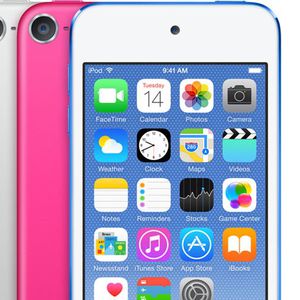
iPod touch
Apple in May 2019 refreshed the handheld non-cellular iPod touch for the first time in several years, introducing an improved processor that makes the device faster than before. In May 2022, Apple announced that was discontinuing the iPod touch, saying that its capabilities are now available across Apple's product lineup. It completely sold out just days later.The 2019 seventh-generation iPod touch had no new design features and continued to look the same as the sixth-generation model, with an aluminum shell, 4-inch display, and body that featured a Home button but no Touch ID fingerprint sensor. Unlike most Apple products, there was no biometric unlocking mechanism in the iPod touch so a passcode is required.With the A10 Fusion chip, which was first used in the 2016 iPhone 7, the 2019 iPod touch offered improved gameplay, support for Group FaceTime, and augmented reality capabilities.Apple offered the last iPod touch in Pink, (PRODUCT)RED, Space Gray, Silver, Gold, and Blue, the same colors available for the previous, sixth-generation iPod touch.
Read Full Roundup • Last updated 05/2022
iOS 15
Apple in June 2021 introduced the latest version of its iOS operating system, iOS 15, which was released on September 20, 2021. iOS 15 introduces new features for FaceTime calls, tools to reduce distractions, a new notifications experience, added privacy features, complete redesigns for Safari, Weather, and Maps, and more.Notifications have been redesigned in iOS 15, adding contact photos for people and larger icons for apps. To reduce distraction, a notification summary collects notifications together for delivery at an appropriate time and arranges notifications by priority.Focus is a new feature that can filter notifications and apps based on what a user wishes to focus on at a certain time. When a user's Focus is blocking incoming notifications, their status will be displayed to others in Messages. iOS will suggest a Focus for different occasions, such as work hours or winding down for bed, using on-device intelligence, but users can also create a custom Focus. When a Focus is set on one Apple device, it automatically applies to other Apple devices.Safari features a completely new design. Controls are now easier to reach with one hand and give more focus to a webpage's content. There is a new, compact tab bar that floats at the bottom of the screen so users can easily swipe between tabs. Tab Groups allow users to save tabs and easily access them at any time across devices. There is also a customizable start page and web extensions for the first time.
Read Full Roundup • Last updated 09/2022
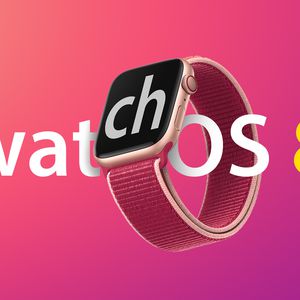
watchOS 8
watchOS 8 is the newest version of the watchOS operating system that runs on the Apple Watch. It was previewed at WWDC in June, and was released to the public on September 20, 2021. The watchOS 8 update introduces new features to help users stay healthy, active, and connected to friends and family, with most of the new additions serving as extensions of changes added in iOS 15. There are several improvements to Wallet, including Ultra Wideband support for digital car keys, and new digital keys for unlocking doors at home, the office, and hotel rooms. All of these new key features work with the Apple Watch's tap to unlock feature. In some states, users will be able to add their driver's license or state ID to Wallet, and select TSA checkpoints will begin accepting digital IDs.The Home app has been overhauled to make it easier to get to HomeKit accessories and scenes as needed, with status updates for thermostats, light bulbs, and other accessories. HomeKit devices can be controlled by room, and those with HomeKit-enabled cameras can now see who is at the door right on the wrist. For Intercom users, there's a quick tap feature for getting in touch with everyone in the home.
Read Full Roundup • Last updated 09/2022
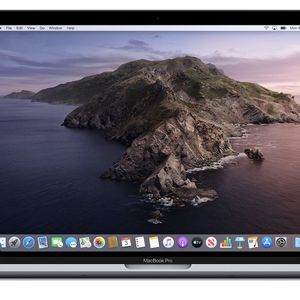
macOS Catalina
macOS Catalina, aka macOS 10.15, is an older version of the operating system that runs on the Mac. macOS Catalina's name was inspired by Santa Catalina Island, popularly known as Catalina and one of the Channel Islands off the coast of Southern California. macOS Catalina preceded macOS Big Sur.In macOS Catalina, Apple has eliminated the iTunes app that's been a staple of the Mac operating system since 2001. iTunes was split into three apps: Music, Podcasts, and TV.The new apps are similar in function to iTunes now, but are split up by feature. You can still manage your devices in Catalina, but it's now done through the Finder rather than through an app. Syncing media can be done using the Apple TV, Podcasts, or Music apps. In the Music app, there's full access to the music library, just like in iTunes, regardless of whether the songs were purchased or ripped from a CD. The iTunes Music Store is included in the Music app, and you can access Apple Music content, too.
Read Full Roundup • Last updated 03/2021
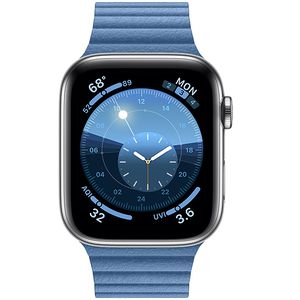
watchOS 6
watchOS 6, released in September 2019, is the current version of the operating system designed to run on the Apple Watch Series 1 and later. Like its predecessors, watchOS 6 brings new watch faces, refreshed apps, updated health features, and, for the first time, a dedicated App Store.Apple added an App Store you can access right on your wrist, and since there's an App Store, you don't need your iPhone to download apps. Apps can be downloaded on the Apple Watch independent of the iPhone, which wasn't previously possible. You can browse through the App Store app to find apps, or you can use a Siri-voiced based search, or the Scribble app, and all the apps in the Apple Watch App Store can be installed without opening up the iPhone. New watch faces in watchOS 6 include Modular Compact, Solar Dial, California, Gradient, Numerals Mono, and Numerals Duo, and each one has a unique look. Some of these faces are limited to newer Apple Watch models, however, and aren't available on older models.There's a Noise app that's designed to measure the noise level of the environment you're in, and it's able to send a notification if the sound is loud enough to result in damage to your hearing. Notifications are sent whenever the decibel level reaches or exceeds 90 decibels so you can protect your ears.
Read Full Roundup • Last updated 09/2020

macOS Big Sur
macOS Big Sur is the prior version of macOS, and it has been replaced with macOS 12 Monterey. Apple introduced the biggest design update to macOS since the introduction of Mac OS X with macOS Big Sur, overhauling everything from the curvature of window corners to colors and dock icon designs. The revamped look was designed to feel both fresh and familiar at the same time.Windows have a lighter appearance for a cleaner look with additional translucency and rounded edges, the Dock is more translucent, app icons have a new uniform squircle shape, menu bars in apps have been redesigned to make them less obtrusive and better able to blend in with your content, system sounds have been entirely redone, and there are new symbols in toolbars, sidebars, and controls to provide clarity and consistency across apps. Buttons and controls for apps now appear when needed and disappear when not in use to provide more focus on content, and the customizable menu bar offers access to a customizable Control Center that houses Wi-Fi, Bluetooth, and AirDrop controls, keyboard brightness, Do Not Disturb, Dark Mode, sound level, and more. The Notification Center has been redesigned with more interactive notifications grouped by app and iOS-style widgets that can be customized in three different sizes. An updated design for core apps provides better organization for multiple open windows and makes it easier to interact with apps.
Read Full Roundup • Last updated 11/2021
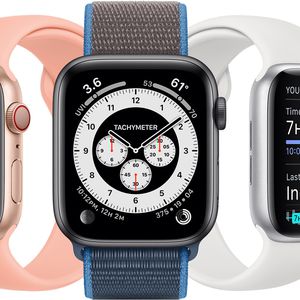
watchOS 7
Introduced in June 2020, watchOS 7 is the previous version of the operating system that runs on the Apple Watch, and was released to the public on September 16, 2020.watchOS 7 was a huge update that brought a number of notable health, fitness, and style features to the Apple Watch. First up, there was a new Face Sharing feature to share your watch faces and install watch faces shared by other people, in apps, in Messages, on websites, and more.Apple introduced several new watch faces including Chronograph Pro with a tachymeter, a Memoji face, a Stripes face with customizable colors, a GMT face that shows multiple time zones, and more. There were also updates for some existing watch faces like Photos and X-Large. Apps can also offer multiple complications, so you can better customize your Apple Watch face to your needs.watchOS 7 included a new Sleep app that offers sleep tracking capabilities, providing sleep analysis in an easy-to-read chart. The Apple Watch uses the accelerometer to detect subtle movements associated with breathing, so it knows if you're asleep or awake.
Read Full Roundup • Last updated 09/2021
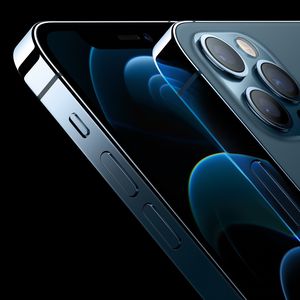
iPhone 12 Pro
Apple discontinued the iPhone 12 Pro and the iPhone 12 Pro Max in September 2021, replacing them with the iPhone 13 Pro and iPhone 13 Pro Max. With the launch of the new iPhones, Apple is no longer offering the iPhone 12 Pro and 12 Pro Max for sale, but it may still be available from third-party vendors. Apple on October 13, 2020 unveiled the iPhone 12 Pro and iPhone 12 Pro Max, were sold alongside the more affordably priced iPhone 12 and iPhone 12 mini. Apple heavily emphasized the "Pro" aspect of the new iPhone 12 Pro models, suggesting the more expensive iPhones "push the boundaries of innovation" for the people who "want the absolute most out of their iPhones."Available in 6.1-inch and 6.7-inch size options, the two new Pro models feature full-screen Super Retina XDR displays that are edge-to-edge with the exception of the Face ID notch.The 6.1-inch iPhone 12 Pro has a resolution of 2532 x 1170 with 460 pixels per inch, while the 6.7-inch iPhone 12 Pro Max has a resolution of 2778 x 1284 and a 458 ppi. The displays offer HDR support with 1200 nits peak brightness, Wide Color, Haptic Touch, and True Tone, all features that have been introduced over the years.
Read Full Roundup • Last updated 09/2021

WWDC 2021
Apple's 32nd Worldwide Developers Conference was a digital-only event for the second year in a row, with no physical gathering in California due to the ongoing global health crisis.The virtual WWDC event kicked off on June 7, and it was free for everyone. The online event gave developers around the world access to future versions of iOS, iPadOS, macOS, watchOS, and tvOS, as well as the opportunity to engage with Apple engineers through sessions and labs.Apple's keynote event took place on Monday, June 7 at 10:00 a.m. Pacific Time. The event was streamed directly from Apple Park and can be replayed on Apple.com, the Apple Developer app, the Apple Developer website, the Apple TV app on the Apple TV, or YouTube.Apple provided a full digital WWDC experience with online keynote, a Platforms State of the Union for developers, technical and design-focused engineering sessions, Apple Developer Forums with Apple engineer participation, and one-on-one developer labs. Apple also hosted its annual Swift Student Challenge, with winners receiving WWDC-themed outerwear, pins, and a one-year membership to the Apple Developer Program.
Read Full Roundup • Last updated 07/2021

WWDC 2020
Apple's 31st Worldwide Developers Conference was a digital-only event in 2020, with no physical gathering in California due to the ongoing global health crisis. The virtual WWDC event kicked off on June 22, and it was free for everyone. The online event allowed millions of developers to get access to future versions of iOS, iPadOS, macOS, watchOS, and tvOS, as well as engage with Apple engineers through engineering sessions, one-on-one lab appointments, and the revamped Apple Developer Forums.Apple's keynote event took place on Monday, June 22 at 10:00 a.m. Pacific Time. The event was streamed directly from Apple Park and can be replayed on Apple.com, the Apple Developer app, the Apple Developer website, the Apple TV app on the Apple TV, or YouTube.
Read Full Roundup • Last updated 09/2020
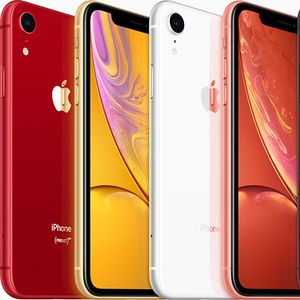
iPhone XR
The iPhone XR, introduced on September 12, 2018, was sold alongside more expensive iPhones up until 2021, when it was discontinued by Apple. The iPhone XR is no longer available and it has been replaced by the iPhone 11, iPhone 12, and iPhone 13 models.The iPhone XR features a precision-machined 7000 Series aerospace-grade aluminum frame that wraps around an all-glass enclosure with the same durable glass used in the more expensive iPhone XS. Apple designed the iPhone XR in six colors: white, black, blue, coral, yellow, and (PRODUCT)RED. With the glass body, Qi-based wireless charging is supported, and the device features IP67 water resistance for keeping it safe from splashes and spills. iPhone XR features a larger display than the previous-generation iPhone 8 Plus, but in a smaller body that falls between the 5.8-inch iPhone XS and the 6.5-inch iPhone XS Max it was introduced alongside.
Read Full Roundup • Last updated 09/2021
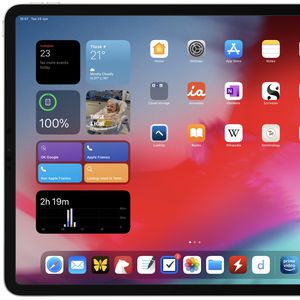
iPadOS 14
Apple in June 2020 introduced iPadOS 14, the version of iOS 14 that's designed to run on iPads. Apple in 2019 split iOS and iPadOS into separate updates with the aim of developing features exclusive to the larger display of the iPad. iPadOS 14 includes almost all of the same features available in iOS 14 such as the redesigned interfaces for Siri and incoming calls, widget redesigns, updated Maps app, changes to Messages, and more, so for a complete look at the new iPad features, make sure to check out our iOS 14 roundup. Our iPadOS roundup covers features that are new in iPadOS 14 and exclusive to the iPad, and won't be found in the iOS 14 roundup or on the iPhone. iOS 14 got a new Home Screen and a feature that lets widgets be pulled from the Today Center and placed among apps, but that feature was not extended to iPadOS. The iPadOS interface looks largely the same, but widgets have been redesigned in the Today Center.
Read Full Roundup • Last updated 09/2021
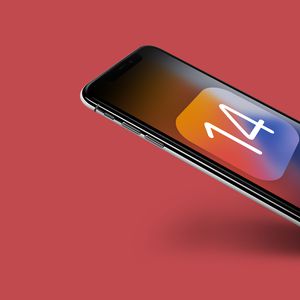
iOS 14
Apple in June 2020 introduced a new version of its iOS operating system, iOS 14, which was released on September 16, 2020. iOS 14 was one of Apple's biggest iOS updates to date, introducing Home screen design changes, major new features, updates for existing apps, Siri improvements, and many other tweaks that streamline the iOS interface. First and foremost, iOS 14 brings a redesigned Home Screen that includes support for widgets for the first time. Widgets can be dragged from the Today view right onto the Home Screen, and can be pinned in different sizes.With a Smart Stack feature, the iPhone can use on-device intelligence to surface the right widget based on time, location, and activity. Each Home Screen page can display widgets customized for work, travel, sports, and more. The Today section where widgets are housed has also been redesigned, and there's a widgets gallery where users can choose new widgets from apps and customize those widgets.Swiping all the way to the end of the app pages on an iPhone opens the new App Library, which is an interface that shows all of the apps on your iPhone to see everything at a glance. Apps are organized into your folder system, but there are also Apple-created folders like Suggestions and Apple Arcade that intelligently surface apps. New app downloads can be added to your Home Screen or kept in the App Library to keep your Home Screen cleaner.
Read Full Roundup • Last updated 09/2021

tvOS 14
tvOS is the operating system that runs on the Apple TV 4K and Apple TV HD, offering a an easy-to-navigate television watching experience on Apple's set-top box. With a full App Store, tvOS supports downloading a range of different apps and games that can be used on the Apple TV, and the interface design puts content front and center. Get to what you want to watch using Siri commands, the Apple Remote, or the Remote app on iPhone and Apple Watch.tvOS includes several built-in apps like Photos for accessing your Photo Library, Apple Music, Podcasts, and Apple TV, an app that aggregates TV and movie content from tons of sources, including the Apple TV+ streaming service. Channels are included in the Apple TV app, so you can subscribe to and watch content from paid services without having to open up a third-party app.
Read Full Roundup • Last updated 06/2021
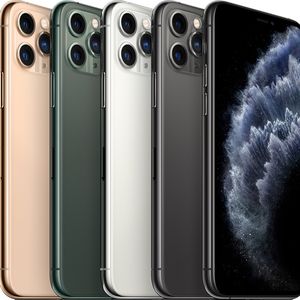
iPhone 11 Pro
The iPhone 11 Pro came out in September 2019, and while Apple continued to sell the regular iPhone 11 alongside the iPhone 12 lineup introduced in September 2020, the iPhone 11 Pro was discontinued. Our previous iPhone 11 Pro roundup is archived below.Apple on September 10, 2019, unveiled its latest flagship iPhones, the iPhone 11 Pro and the iPhone 11 Pro Max, which are being sold alongside the more affordable and less feature rich iPhone 11. Apple says that the 5.8-inch and 6.5-inch iPhone 11 Pro and iPhone 11 Pro Max have a new "Pro" moniker because the two devices are designed for users who want the very best smartphone that's available. Both new iPhones feature Super Retina XDR OLED displays, with the 5.8-inch iPhone 11 Pro offering a 2426 x 1125 resolution and the 6.5-inch iPhone offering a 2688 x 1242 resolution. The new phones include HDR support, a 2,000,000:1 contrast ratio, and 800 nits max brightness (1200 for HDR). True Tone is included for matching the white balance of the display to the ambient lighting in the room to make it easier on the eyes, as is wide color for more vivid, true-to-life colors.
Read Full Roundup • Last updated 10/2020

iMac Pro
Apple in March confirmed that the iMac Pro has been discontinued, with no additional updates or refreshes planned going forward. iMac Pro stock was available as long as supplies lasted, with Apple officially discontinuing the iMac Pro on March 19.The iMac Pro has been removed from Apple's website and is no longer available for purchase, though there are some refurbished models available for those who are still looking for one of the now-discontinued machines.Apple first released the iMac Pro in December 2017, and then did not provide any significant updates beyond minor hardware tweaks. With the iMac Pro being discontinued, Apple recommends that those who need a "pro" level desktop machine check out the current 27-inch iMac.Apple is also developing an Apple silicon version of the iMac that's rumored to be coming in 2021. The new machine is said to feature a complete design overhaul with slimmer bezels and a look that's similar to the Pro Display XDR.
Read Full Roundup • Last updated 04/2021
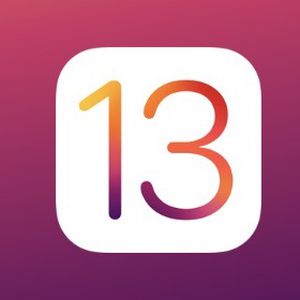
iOS 13
Apple introduced the newest version of its iOS operating system, iOS 13, on June 3 at the keynote event of the 2019 Worldwide Developers Conference. iOS 13 marks a huge overhaul to iOS, offering up a long list of new features. First up, Apple continued on with its optimization trend introduced in iOS 12, making iOS 13 faster and more efficient than ever. App update times have improved, app launch times are two times faster, app download sizes have been reduced by up to 50 percent, and Face ID is 30 percent faster. There's a new systemwide Dark Mode option, which changes the entire look of the operating system from light to dark. You can choose either option, or have Dark Mode come on at sunset or on a custom schedule. All native Apple apps feature Dark Mode support, and third-party apps can use Dark Mode APIs to add Dark Mode integration.
Read Full Roundup • Last updated 09/2020
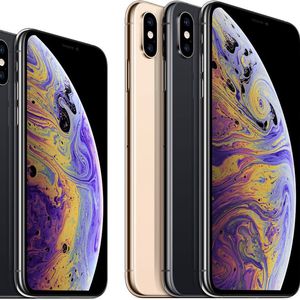
iPhone XS
The iPhone XS and iPhone XS Max, introduced on September 12, 2018, were Apple's two current flagship iPhones, but have since been replaced with newer models. The two iPhones were discontinued on September 10, 2019, when Apple introduced the new iPhone 11, iPhone 11 Pro, and iPhone 11 Pro Max devices, but some resellers may still continue to offer the XS and XS Max for sale at discounted prices.Both of the iPhones look similar to the iPhone X, but in addition to the 5.8-inch model, there's also now a larger 6.5-inch model. iPhone XS and iPhone XS Max feature the sharpest OLED displays and highest pixel density of any Apple device, with support for Dolby Vision, HDR 10, and Wide Color. iPhone XS Max, the 6.5-inch iPhone, is the largest display Apple has offered, but in a body that's the size of the iPhone 8 Plus. According to Apple, the iPhone XS and XS Max have the most durable glass ever in a smartphone with improved scratch resistance. Like the iPhone X, iPhone XS and iPhone XS Max feature stainless steel frames and glass bodies that support wireless charging, along with edge-to-edge displays and a TrueDepth Camera System for Face ID.
Read Full Roundup • Last updated 03/2021
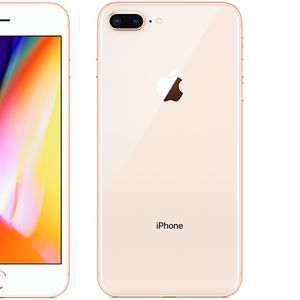
iPhone 9
Apple in 2017 released the iPhone 8 and the iPhone X, skipping over the iPhone 9 entirely. In 2018, Apple released the XS, XS Max, and XR, and in 2019, Apple released the iPhone 11, 11 Pro, and 11 Pro Max, with no sign of the iPhone 9. Apple might revisit the lost name in 2020, using it for the rumored low-cost 4.7-inch iPhone that's expected to be released in the first half of the year. Japanese site Mac Otakara heard from an "informed source" that Apple will be naming its upcoming iPhone the "iPhone 9," though it remains to be seen if that will happen because calling it "iPhone 9" might make it less appealing to consumers when there are already iPhone 11 models available.
Read Full Roundup • Last updated 01/2021
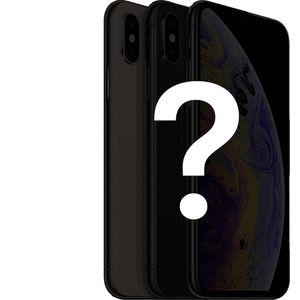
iPhone XT
iPhone XT is one possible name that Apple could use for the 2019 iPhone lineup. Apple's 2019 iPhones, expected in September of 2019, will follow the iPhone XS, XS Max, and iPhone XR.With the current XR and XS naming scheme it's not yet clear what Apple will call its 2019 iPhone lineup, but as XT follows XS, it's one possible choice that Apple might go with, and a naming option that we heard from an unverified source that claimed to have knowledge of Apple's device plans. Because we don't have any insight into Apple's naming plans at this time, our official roundup for the next-generation iPhones can be found under the "2019 iPhones" label, available here. For rumors on what we're expecting to see in the new iPhones coming in 2019, make sure to check out the 2019 iPhones roundup.
Read Full Roundup • Last updated 09/2020

iPhone XI
iPhone XI is one possible name that Apple could use for the 2019 iPhone lineup. Apple's 2019 iPhones, expected in September of 2019, will follow the iPhone XS, XS Max, and iPhone XR.With the current XR and XS naming scheme it's not yet clear what Apple will call its 2019 iPhone lineup, but as XI follows X, we believe it's one choice Apple might go with. Because we don't have any insight into Apple's naming plans at this time, our official roundup for the next-generation iPhones can be found under the "2019 iPhones" label, available here. For rumors on what we're expecting to see in the new iPhones coming in 2019, make sure to check out the 2019 iPhones roundup.
Read Full Roundup • Last updated 09/2020
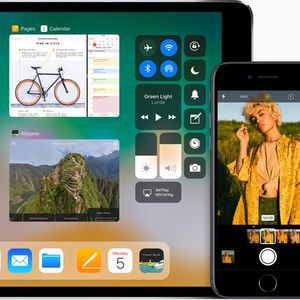
iOS 11
Introduced on June 5, 2017 at the Worldwide Developers Conference, iOS 11 is the next-generation version of iOS. As Apple CEO Tim Cook said on stage at WWDC, the update takes the best and most advanced operating system and turns it up to 11. iOS 11 introduces subtle design changes to interface elements throughout the operating system. Text is bolder, apps like Calculator and Phone have a new look, and the Lock screen and Control Center have been entirely redesigned.The Control Center is customizable and there are options to include a wider range of settings. It's no longer split across multiple screens, and 3D Touch integration has expanded, so you can do more without needing to open the Settings app.
Read Full Roundup • Last updated 09/2018

WWDC 2017
The 2017 Worldwide Developers Conference keynote was Apple's biggest event in years, with the company introducing both new software platforms and a range of new hardware products. iOS 11, macOS High Sierra, and watchOS 4 were introduced, along with new iPad Pro models, new MacBooks, new MacBook Pro models, and new iMacs.iOS 11 introduces some system-wide design changes, with Apple focusing on bolder fonts, borderless buttons, new animations, and other small visual tweaks. Some interface elements were totally overhauled, including the Control Center, which now takes up a single page, has an entirely new look, and offers new customization options. The Lock Screen and the Notification Center have been merged together and are now one entity, so pulling down to access Notification Center also now brings up the Lock Screen.
Read Full Roundup • Last updated 06/2017
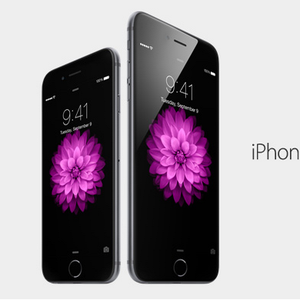
iPhone 6
Apple launched two new iPhones, the 4.7-inch iPhone 6 and the 5.5-inch iPhone 6 Plus, in September of 2014. Along with larger screens and a completely new iPad-style design with an ultra thin body and rounded corners, the two new phones offer faster processors, better cameras, and NFC for Apple's Apple Pay payment system.The iPhone 6 and 6 Plus originally came in Gold, Silver, and Space Gray in 16, 64, and 128 GB capacities. The iPhone 6 pricing started at $199 on contract or $649 without contract, while the iPhone 6 Plus pricing started at $299 on contract or $749 without contract. With the release of the iPhone 6s and 6s Plus in September 2015, Apple reduced prices on the older iPhone 6 and 6 Plus models by $100 and eliminated Gold as a color option. Only Silver and Space Gray remain available.While both models include the same 64-bit A8 chip and the same general design, there are several differences between the iPhone 6 and 6 Plus. The iPhone 6 measures in at 6.9mm, while the iPhone 6 Plus is slightly thicker at 7.1mm. Apple's iPhone 6 Plus also has three major differentiating factors: optical image stabilization for the camera, and a longer battery life, and an iPad-style landscape mode that displays more content on the screen.Though the iPhone 6 Plus has optical image stabilization, both phones got some major camera improvements in form of sensor upgrades, improved tone mapping, better noise reduction, and new "Focus Pixel" technology, which improves the phone's ability to select autofocus points. For videos, there's a new 240fps slo-mo option, along with support for shooting in 1080p at 60fps. The front-facing camera was also upgraded, with an f/2.2 aperture that lets in more light and new burst mode capabilities.
Read Full Roundup • Last updated 09/2016
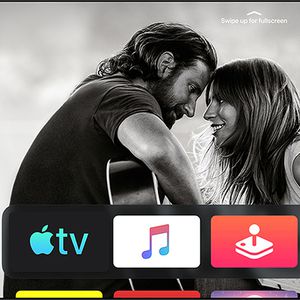
tvOS 13
The fourth- and fifth-generation Apple TVs run an operating system called tvOS, which was built from the ground up to provide a simple, easy-to-navigate television watching experience on Apple's set-top box. tvOS is designed to put content front and center, with a familiar app-centric design that's controlled through a touch-based remote or an iOS/watchOS app, and Siri voice commands. tvOS features a full App Store for downloading a range of different apps and games that can be used on the Apple TV, along with several built-in apps, much like iOS. Built-in apps include Photos for accessing your Photo Library on the Apple TV, Apple Music, Podcasts, and Apple TV, an app that aggregates TV and movie content from a wide range of different sources.The Apple TV app also provides Channels, letting you subscribe to and watch content from a variety of services without having to open up a third-party app, and it is the home of Apple TV+, Apple's streaming service that offers original TV shows and movies. Siri integration is a key part of tvOS, allowing users to search for specific content via voice for quicker content access, and there are useful features to make television watching simpler, like single sign-on or zero sign-on for more quickly signing into third-party apps that require authentication with your cable credentials.
Read Full Roundup • Last updated 09/2020
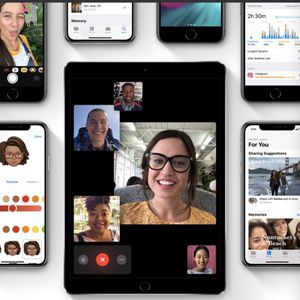
iOS 12
Apple iOS 12, the current publicly available version of iOS, on June 4, 2018 at the keynote event of the Worldwide Developers Conference. iOS 12 is set to be replaced with iOS 13, which is currently being beta tested, in September 2019.With iOS 12, Apple doubled down on performance, working from top to bottom to make iPhones and iPads faster and more responsive. Apple has made improvements on devices both old and new, and iOS 12 has been designed to run on all devices able to run iOS 11. With Apple's performance improvements, apps launch faster, the keyboard appears faster, and the Camera is quicker to open. Apple has also optimized the system when it's under load, making iOS devices faster when you need performance the most.
Read Full Roundup • Last updated 09/2019

WWDC 2019
Every year, Apple holds a Worldwide Developers Conference near its Cupertino campus in California to give thousands of developers from around the world a chance to meet up with Apple engineers and attend valuable workshops and software development sessions. For many years, WWDC was hosted at the Moscone Center in San Francisco, but starting in 2017, Apple moved to the McEnery Convention Center in San Jose, California, where this year's conference was also held. WWDC 2019 took place from Monday, June 3 to Friday, June 7. Apple kicks off each conference with a keynote on the first day, where the company makes major announcements and sets the stage for the rest of the week. Media invites for the June 3 keynote event went out on May 22.Keynote events typically offer a look at upcoming products and provide the first details on new operating systems, though in some years there are no hardware announcements and the focus of the event is software.
Read Full Roundup • Last updated 06/2019
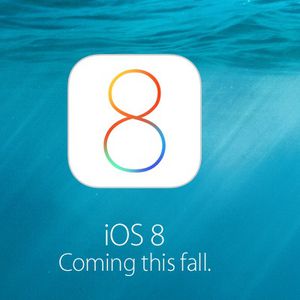
iOS 8
iOS 8 was unveiled at Apple's Worldwide Developers Conference in June of 2014 and launched to the public on September 17, 2014. The release for existing devices came two days ahead of the launch of the iPhone 6 and 6 Plus.Improved integration between Apple devices, both mobile and desktop, is a major focal point of both iOS 8 and OS X Yosemite. Apple introduced several new "Continuity" features that are designed to connect the iPhone, iPad, and Mac "like never before."AirDrop, Apple's peer-to-peer file sharing protocol, now works between iOS and Mac devices. Handoff, a newly introduced feature, works on the same sharing principles and lets users start a task on one device and instantly pick it up on another. Along with sharing tasks with Handoff, iPads and Macs can both place and answer phone calls using the iPhone as a relay. Using this same functionality, Macs and iPads are able to receive SMS messages via the Messages app, which was previous limited to iMessages on those platforms.
Read Full Roundup • Last updated 09/2015
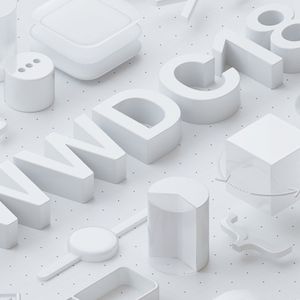
WWDC 2018
The 2018 Worldwide Developers Conference focused solely on software, with no hardware announcements included in the event. Apple introduced new versions of iOS, macOS, tvOS, and watchOS, officially debuting iOS 12, macOS Mojave, tvOS 12, and watchOS 5.With iOS 12, Apple doubled down on performance, working from top to bottom to make iPhones and iPads faster and more responsive. Apple has made improvements on devices both old and new, and iOS 12 has been designed to run on all devices able to run iOS 11. With Apple's performance improvements, apps launch faster, the keyboard appears faster, and the Camera is quicker to open. Apple has also optimized the system when it's under load, making iOS devices faster when you need performance the most.
Read Full Roundup • Last updated 06/2018
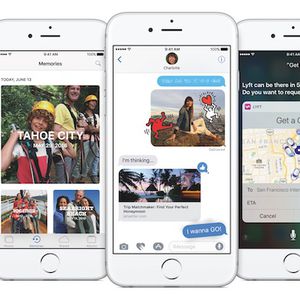
iOS 10
Apple unveiled iOS 10, the next-generation operating system for the iPhone, iPad, and iPod touch, on June 13, 2016, releasing it to the public exactly three months later on September 13. According to Apple CEO Tim Cook, iOS 10 is the "biggest release ever" for iOS users, with major updates for a wide variety of apps, services, and features, including Messages, Siri, Photos, Maps, Apple Music, News, Apple Pay, Control Center, and more.iOS 10 features a redesigned Lock screen with 3D-touch enabled notifications that offer up more information, a more easily accessible camera, and a new widgets screen that houses widgets formerly located in the Today section of the Notification Center. There's a redesigned Control Center, also with support for 3D Touch, and a new Raise to Wake feature wakes up the screen without bypassing notifications. Siri can do a lot more in iOS 10, thanks to a Siri SDK that allows developers to build Siri support into their apps. You can now ask Siri to do things like summon an Uber or send a message in WhatsApp. Messages has been overhauled with new features like background animations, bubble effects, rich links, and Digital Touch, the sketching feature first introduced on the Apple Watch, allowing users to create drawings and annotate photos and videos. Handwritten notes, hidden "invisible ink" messages, quick "Tapback" replies, and bigger emoji are new in Messages, and there's even a predictive emoji feature that suggests words that can be replaced with emoji.
Read Full Roundup • Last updated 09/2017
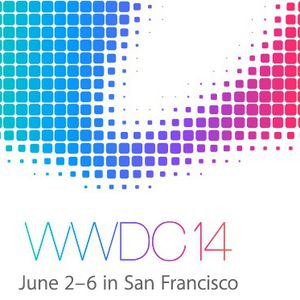
WWDC 2014
Apple just completed their 2014 keynote address at WWDC and introduced a number of new features in both OS X and iOS. A full transcript of the event is available, as well as a video stream of the keynote address.Apple today announced the latest version of its Mac operating system, OS X Yosemite. The sequel to last year's OS X Mavericks, Yosemite includes a user interface redesign, as well as major new features focusing on seamless integration between Mac and iOS devices, a new cloud storage system called iCloud Drive, as well as the ability to make phone calls and send text messages through an iPhone.
Read Full Roundup • Last updated 08/2014
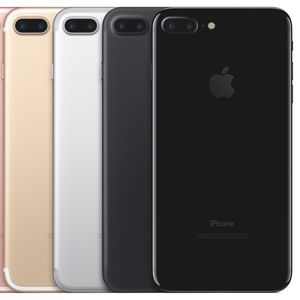
iPhone 7
The iPhone 7 and iPhone 7 Plus, first released in 2016, are no longer flagship Apple devices, having been replaced by the iPhone 8, iPhone XS, XS Max, XR, iPhone 11, iPhone 11 Pro, and iPhone 11 Pro Max.Apple stopped selling the iPhone 7 on September 10, 2019, following the debut of the new 2019 iPhone lineup.Priced starting at $449 for a 64GB iPhone 7 or $569 for an iPhone 7 Plus, the two older iPhones are more affordable than the $599 iPhone 8, the $699 iPhone 8 Plus, $749 iPhone XR, the $999 iPhone XS, and the $1099 iPhone XS Max. As of September 2017, the iPhone 7 and iPhone 7 Plus have been replaced by the iPhone 8, iPhone 8 Plus, iPhone X, iPhone XS, and iPhone XR. Apple is still selling the iPhone 7 and iPhone 7 Plus as lower-cost devices starting at $449, but the two iPhones are no longer the company's flagship smartphones.
Read Full Roundup • Last updated 09/2019
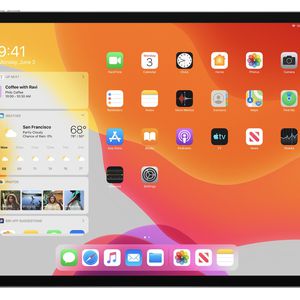
iPadOS
iPadOS, released in the fall of 2019, is a version of iOS 13 that's designed to run on Apple's iPads. According to Apple, iPadOS is built on the same foundation as iOS, but with powerful new capabilities created for the larger display of the iPad. First and foremost, iPadOS includes almost all of the features available in iOS 13, such as performance optimizations, a new systemwide Dark Mode, a revamped Photos app, a Find My app, Sign In with Apple, updated Maps, and tons more, so for an overview of the new iOS 13 features, make sure to check out our iOS 13 roundup.The iPadOS roundup below highlights the iPad-specific features that are part of iPadOS, rather than the iOS 13 features available on both platforms. iPadOS features a new Home screen for the iPad, which shrinks down the app icon size so you can fit more apps on each page. You can also now add Today Widgets from the left side of the screen onto the Home screen itself for easier access to your widgets and at-a-glance info like news headlines, weather, events, and more when your iPad is in landscape mode.
Read Full Roundup • Last updated 09/2020
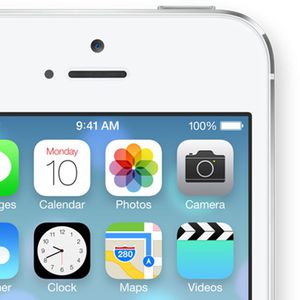
iOS 7
Apple revealed iOS 7 during the WWDC keynote on June 10, 2013, featuring a brand new design and a number of new features. iOS 7 launched publicly on September 18, 2013. Users can obtain the update either by connecting their devices to iTunes and clicking the "Check for Update" button or checking for over-the-air updates on their devices via Settings -> General -> Software Update. iOS 7 is available as a free upgrade for the iPhone 4, iPhone 4S, iPhone 5, fifth-generation iPod touch (16GB/32GB/64GB) and the iPad 2, iPad with Retina display (third- and fourth-generation), and iPad mini. iOS 7 will come pre-installed on the new iPhone 5s and iPhone 5c devices. Owners of the iPhone 5s will also find several new features that are specific to that device. These include: 64-bit support, Touch ID fingerprint sensing, Camera image stabilization, Burst Mode and Slow-Mo video.iOS updates are generally recommended for all users, but in the past, users of older hardware have found that performance of the latest iOS versions on their devices can be sluggish. If you are on older iPhone hardware (iPhone 4), you may want to wait to see how iOS 7 runs on your device. Our discussion forums are a good resource for specific questions/answers, and we've also gathered some tips to help users discover less well-known features. Over time, we expect new apps and updates will start requiring iOS 7 to take advantage of the new features and interface.iOS 7 was designed to be compatible with all existing iOS 6 apps, and user testing has found this to generally be true. If you rely on a specific "mission critical" app, it would still be prudent to make sure that that app runs before upgrading.
Read Full Roundup • Last updated 09/2014
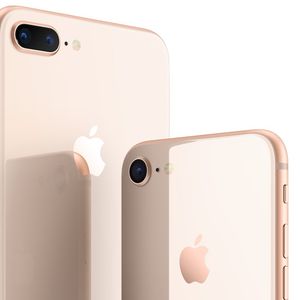
iPhone 8
Apple in April 2020 launched a new low-cost iPhone, the 2020 iPhone SE, as a replacement for the iPhone 8. Despite the name, the iPhone SE features the same design as the iPhone 8 but with upgraded internals that include the same A13 chip as the iPhone 11, 11 Pro, and 11 Pro Max. The iPhone SE is priced starting at $399, and with its debut, Apple has discontinued the iPhone 8 and the iPhone 8 Plus. For more on the iPhone SE, make sure to check out our iPhone SE roundup.Introduced on September 12, 2017, the iPhone 8 and the iPhone 8 Plus represented a "huge step forward for the iPhone," according to Apple CEO Tim Cook. The two devices "improve on everything we love about iPhone" with overhauled internals and a tweaked design, but the changes introduced were not as dramatic as the changes brought to the iPhone X, launched alongside the iPhone 8 and iPhone 8 Plus. The iPhone 8 and iPhone 8 Plus mix a little bit of the iPhone X with a little bit of the previous-generation iPhone 7 and iPhone 7 Plus. The overall design is the same as previous-generation devices, but the iPhone 8 and the iPhone 8 Plus adopted glass bodies sandwiched in a a matching aluminum frame. Unlike the iPhone X, the iPhone 8 continued to include Touch ID Home button and thick bezels at the top and bottom of the display.
Read Full Roundup • Last updated 04/2020
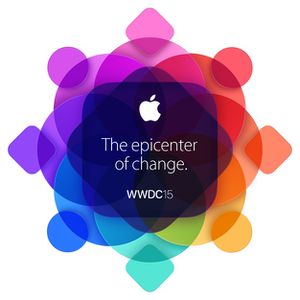
WWDC 2015
Apple's Worldwide Developer Conference keynote for 2015 was held on Monday, June 8, with the company introducing the next versions of its iOS, OS X, and watchOS operating systems, as well as an all-new Apple Music streaming service. A full transcript of our live blog coverage of the event remains available, and Apple has shared a video stream for on-demand viewing.The next version of Apple's mobile operating system, iOS 9, was introduced at the keynote event with developer access starting immediately, to be followed by a public beta in July and public availability in the fall, mostly likely in the September timeframe when Apple typically introduces its new iPhone hardware.iOS 9's biggest focus is on intelligence and proactivity, allowing iOS devices to learn user habits and act on that information, opening up apps before we need them, making recommendations on places we might like, and guiding us through our daily lives to make sure we're where we need to be at the right time. Siri and search improvements drive those new capabilities, with other improvements including transit directions for Maps in select cities, a much more robust Notes app, a new News app, and Apple Pay enhancements such as support for store-brand cards and rewards programs.
Read Full Roundup • Last updated 06/2015

WWDC 2016
At WWDC 2016, the focus was on software. While no new hardware was unveiled, Apple announced major new updates to iOS, the newly renamed macOS, tvOS, and watchOS. iOS 10 features a redesigned Lock screen with 3D-touch enabled notifications that offer up more information, a more easily accessible camera, and a new widgets screen that houses widgets formerly located in the Today section of the Notification Center. There's a redesigned Control Center, also with support for 3D Touch, and a new Raise to Wake feature wakes up the screen without bypassing notifications. Siri can do a lot more in iOS 10, thanks to a Siri SDK that allows developers to build Siri support into their apps. You can now ask Siri to do things like summon an Uber or send a message in WhatsApp.
Read Full Roundup • Last updated 06/2016
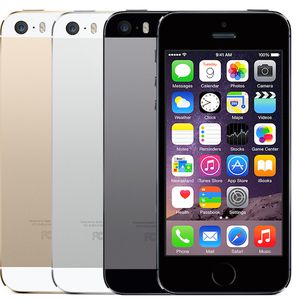
iPhone 5se
The "iPhone 5se" was the name rumored for Apple's 4-inch iPhone before it launched on March 21, 2016 as the "iPhone SE." The iPhone SE combines the body of the iPhone 5s with many of the internals of the iPhone 6s, such as the A9 processor and 12-megapixel camera, resulting in a powerful but compact device. For details on the iPhone SE, make sure to check out our full iPhone SE roundup.The information remaining in the iPhone 5se roundup reflects the rumors that circulated about the 4-inch iPhone before its debut.Since the launch of the 4.7 and 5.5-inch iPhone 6 and 6 Plus in September of 2014, there have been rumors suggesting Apple plans to introduce a new 4-inch device aimed at those who want something both more affordable and smaller in size. Despite rumors, no new device materialized in 2015, but as of 2016, rumors have ramped up and it appears a new 4-inch iPhone will launch in March of 2016 at an event to be held on the 21st.
Read Full Roundup • Last updated 03/2016

2019 iPhones
Apple's 2019 iPhone announcement is happening now. Follow our live coverage. This roundup will be updated shortly after the full announcement. In 2019, Apple is expected to continue offering iPhones in multiple sizes and at multiple price points to provide customers with choice. 2018 brought the iPhone XS (5.8 inches), the iPhone XS Max (6.5 inches), and the iPhone XR (6.1 inches). The two XS devices have higher price tags starting at $999, while the XR is priced starting at $749. We're expecting a similar lineup in 2019, perhaps with a continuation of both the iPhone XS and XR devices, with rumors suggesting we'll see 5.8 and 6.5-inch OLED iPhones along with a 6.1-inch LCD iPhone. We don't yet know what Apple will call the new iPhones, but iPhone XI or iPhone 11 are possibilities for the iPhone XS successors. Given that naming is up in the air, we're going to be referring to the upcoming iPhones as the "2019 iPhones" for now.
Read Full Roundup • Last updated 09/2019
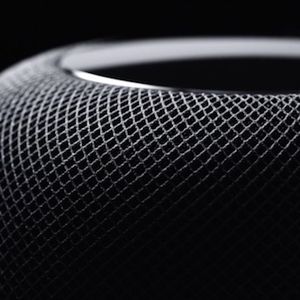
Siri Speaker
Apple's much-rumored Siri-based speaker, HomePod, was unveiled at the 2017 Worldwide Developers Conference on June 5. HomePod is Apple's answer to the Amazon Echo and the Google Home, but Apple's speaker is unique because of its focus on superior sound quality. While Siri is baked into HomePod for answering queries, accessing Apple Music, and controlling HomeKit devices, it's not the sole feature the product is built on. HomePod has a lot more to offer. For full details on Apple's speaker, make sure to check out our dedicated HomePod roundup.
Read Full Roundup • Last updated 06/2017
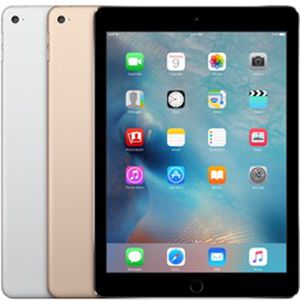
iPad Air 2
Apple's original iPad Air was impressively thin, measuring in at just 7.5mm, similar to the pencil that it was compared to in an array of advertisements. On October 16, 2014, Apple introduced the iPad Air 2, which is significantly thinner at just 6.1mm thick.Aside from its thinner body, the iPad Air 2 retains the same general design elements of the original iPad Air, but it has gained some impressive under-the-hood improvements. For one, the tablet now comes with the Touch ID fingerprint sensor first introduced in the iPhone 5s, and it also includes an upgraded A8X processor that's faster than the A8 in the iPhone 6 and 6 Plus, and 2GB of RAM. There's an M8 motion coprocessor as well, which pulls in data from the accelerometer, gyroscope, compass, and a new barometer.Using a laminated gapless display let Apple shed bulk from the iPad Air 2 while also improving its screen, offering enhanced contrast and more vibrant colors. Apple also added an anti-reflective screen coating that cuts down on up to 56 percent of glare.The iPad Air 2 has gained an 8-megapixel rear camera that includes an Apple-designed image signal processor, an f/2.4 aperture, and support for 1080p HD video. For the first time, the iPad can capture large panoramas of up to 43 megapixels, it can capture 720p 120FPS Slo-mo video, it has time-lapse video capabilities, and it can take burst mode photos.
Read Full Roundup • Last updated 03/2017

iWatch Rumors
Apple Watch Announced!: See details in our Live Coverage on MacRumors.com. Apple has been rumored to be working on its "iWatch" smart watch since late 2012, but the company has begun accelerating work on the project as it tries to expand its family of mobile devices to the wrist. Apple has already started work on trademarking the name in a number of countries in preparation for an introduction reportedly taking place September 9 alongside the iPhone 6. Apple has confirmed the event date, but not whether the iWatch will be introduced at that time.Because we don't yet know what an Apple iWatch will look like, the photos we've included in the roundup are either mockups or existing non-Apple products. For example, the red watch at the top of the page is the Lunatik iPod nano watch.
Read Full Roundup • Last updated 09/2014
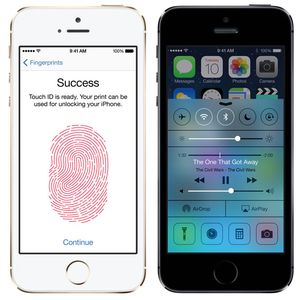
iPhone 5s
The iPhone 5s is the same size and design as the current iPhone 5 but features improved specifications and is available in three colors: Silver, Gold, and Space Gray. The iPhone 5s uses a 64-bit A7 processor which is as twice as fast as the previous generation. The new device also incorporates a "Touch ID" capacitive fingerprint sensor built into the home button that's capable of scanning sub-epidermal skin layers. Touch ID can be used to unlock an iPhone and authorize iTunes purchases. The rear camera in the iPhone 5s has a new 5-element lens with an f/2.2 aperture and a sensor that is 15% larger than the current iPhone 5, as well as a dual-LED "True Tone" flash that will adapt to the existing lighting to provide better colors and more accurate skin tones. Other new camera features include Burst Mode, capable of capturing 10 pictures per second and automatically selecting the best shot, and Slo-Mo 720p video capture at 120 frames per second.Apple launched the iPhone 5s in the US, Australia, Canada, China, France, Germany, Japan, Singapore, and the UK on September 20, 2013. In the U.S., the iPhone 5s costs $199, $299, and $399 for the 16 GB, 32 GB, and 64 GB models respectively with a 2-year contract. Non-contract, unlocked SIM free devices are available for $649/$749/$849. Pricing for other individual countries is available on Apple's online store.
Read Full Roundup • Last updated 09/2014
OS X Mavericks
OS X 10.9 Mavericks introduces a number of new features aimed at extending both battery life and responsiveness. Apple has promised 200 changes in Mavericks, including both minor cosmetic updates and major performance enhancements. The new operating system was released just after Apple's October 22, 2013 media event and is a free upgrade from the Mac App Store for all OS X Mountain Lion, Lion, and Snow Leopard users.Mavericks has several new features developed for power users, with enhanced multi-monitor support and expanded finder capabilities. All users will experience improved power usage, a new iCloud Keychain function for secure cross-device passwords, and better Safari performance.A new iBooks app and a new Maps app are both bundled into Mavericks, allowing users to read books and access maps within native apps for the first time. While Mavericks has not gotten the same drastic visual overhaul found in iOS 7, a number of skeuomorphic elements introduced with Mountain Lion have been removed.
Read Full Roundup • Last updated 10/2014
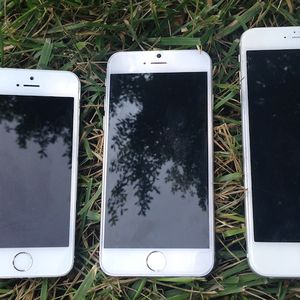
iPhone 6 Rumors
iPhone 6 Announced!: See details in our Live Coverage on MacRumors.com.Apple's new iPhone 6 devices will be introduced at a September 9 media event at the Flint Center, the same location where Apple debuted the original Mac 30 years ago. An overwhelming number of iPhone 6 rumors and part leaks have given us a near-complete look at the two devices ahead of their launch.With the iPhone 5, Apple increased the screen size of the device from 3.5 inches to 4 inches, and with the iPhone 6, the phone's display is going to grow even larger. Though Apple experimented with a range of screen sizes, the company settled on 4.7 inches and 5.5 inches for its two devices, which will bring the next iPhone in line with competing Android and Windows phones that have adopted larger displays.Over the course of the last several years, consumer preference has shifted towards bigger screens, and Apple is now prepared to meet consumer demand for larger devices.
Read Full Roundup • Last updated 09/2014

iOS 8 Features
While our main iOS 8 roundup focused on the major changes announced by Apple, this iOS 8 roundup highlights some of the more interesting but smaller additions and refinements made to Apple's mobile operating system throughout its lifespan between September 2014 and September 2015.Apple released iOS 8 to the public on September 17, 2014, two days ahead of the launch of the iPhone 6 and 6 Plus. Prior to the public launch, the software went through five developer betas before a golden master was released on September 9.The final version of iOS 8 was iOS 8.4.1, a minor update that introduced security improvements and bug fixes. Prior to iOS 8.4.1, Apple introduced iOS 8.4, which brought a revamped Music app and support for the new Apple Music service.Revamped Music app - iOS 8.4 introduces a new look for the Music app with a revamped design that shows pictures of artists in the Artists view and offers personalized playlists. It also offers a new MiniPlayer, a redesigned look for "Now Playing," global search capabilities that make it easier to search from anywhere within the Music app, and access to the new on-demand streaming music service and Beats 1 radio.
Read Full Roundup • Last updated 09/2015
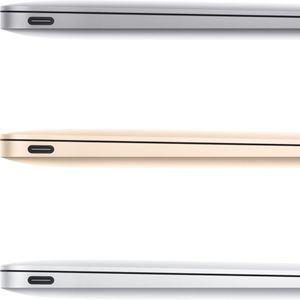
MacBook
Apple in July 2019 discontinued the MacBook, and stopped selling the 2017 model. The MacBook has been replaced with the new, more affordable MacBook Air. Apple's Mac lineup has been simplified, with the MacBook Air and the MacBook Pro now the sole notebooks the company sells. Apple introduced the second update to its ultra-thin 12-inch MacBook on June 5, 2017, debuting new machines with faster processors, better graphics, faster SSDs, and support for up to 16GB RAM. Aside from these internal changes and the addition of a revamped keyboard, the MacBooks are identical to previous-generation 2016 models.First introduced in March of 2015, the MacBook is Apple's newest Mac product line, distinct from the existing MacBook Air and MacBook Pro lineups. The MacBook is Apple's thinnest, lightest Mac to date with terraced battery technology and a fanless design enabled by a low-power Core M processor.
Read Full Roundup • Last updated 07/2019
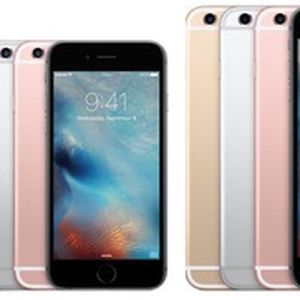
iPhone 6s
Apple announced its ninth-generation iPhones, the iPhone 6s and the iPhone 6s Plus, at a media event in San Francisco, California on September 9, 2015. The iPhone 6s and iPhone 6s Plus can be summed up beautifully with a single quote from Apple CEO Tim Cook: "While they may look familiar, we have changed everything about these new iPhones."Available with the same 4.7 and 5.5-inch Retina displays, the iPhone 6s and iPhone 6s Plus have the same exterior design as the iPhone 6 and 6 Plus, but much of the hardware inside, from the camera to the processor, is new and improved. Core technologies like the touchscreen and the vibration engine have been updated, and the devices are even constructed from a new material. The iPhone 6s and 6s Plus are made from a 7000 Series aluminum alloy, which is stronger and more durable than the 6000 series used in the previous-generation iPhones. Apple's also updated the devices with stronger glass, made using a dual ion exchange process. One of the biggest changes is the introduction of a new aluminum finish in Rose Gold, which accompanies the traditional Silver, Space Gray, and Gold color options. A second-generation Touch ID module makes fingerprint detection twice as fast, and the 64-bit A9 processor in the two devices is 70 percent faster at CPU tasks and 90 percent faster at GPU tasks than the A8 processor in the iPhone 6 and 6 Plus. A built-in M9 motion coprocessor enables new features, such as always-on "Hey Siri" functionality.
Read Full Roundup • Last updated 09/2018

'Steve Jobs' Movie
On October 24, 2011, just weeks after former Apple CEO Steve Jobs passed away from pancreatic cancer, Walter Isaacson released his best-selling biography, "Steve Jobs." The book was crafted from more than forty interviews Isaacson had with Jobs over the course of two years, and it provided a deep, introspective look into the life of the man responsible for turning Apple into the world's most valuable company. It also provided an honest look at Jobs -- Isaacson conducted over a hundred interviews with Jobs' family members, friends, colleagues, competitors, and enemies -- giving the clearest picture yet of the kind of man that Steve Jobs was. Before Isaacson even published the book, Sony, knowing that it would be an undeniable hit, acquired the rights to produce a movie based on the biography, and that's the basis for the "Steve Jobs" film.A lot of big names are attached to the movie, which is said to be a serious drama that covers three of Jobs' product launch events. Aaron Sorkin, famous for writing "The West Wing," "Newsroom," "Moneyball," and "The Social Network," wrote the screenplay, and Danny Boyle, known for films like "127 Hours" and "Slumdog Millionaire," will direct.
Read Full Roundup • Last updated 01/2016
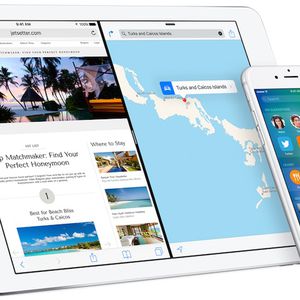
iOS 9
iOS 9 is Apple's newest operating system for iOS devices like the iPhone and the iPad, released to the public on September 16, 2015. iOS 9 builds on the content introduced with iOS 7 and iOS 8, bringing subtle design changes, refined features, improved functionality, and performance enhancements. iOS 9's biggest focus is on intelligence and proactivity, allowing iOS devices to learn user habits and act on that information, opening up apps before we need them, making recommendations on places we might like, and guiding us through our daily lives to make sure we're where we need to be at the right time. Siri is at the heart of the changes, and the personal assistant is now able to create contextual reminders and search through photos and videos in new ways. Swiping right from the home screen also brings up a new screen that houses "Siri Suggestions," putting favorite contacts and apps right at your fingertips, along with nearby restaurant and location information and important news. Deeper search capabilities can bring up results like sports scores, videos, and content from third-party apps, and you can even do simple conversions and calculations using the search tools on your iPhone or iPad.
Read Full Roundup • Last updated 09/2016
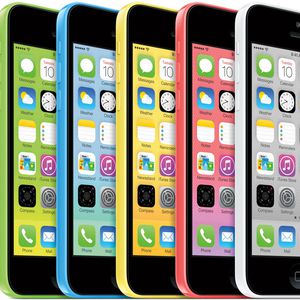
iPhone 5c
The iPhone 5c is essentially a repackaged iPhone 5 with a new plastic enclosure. The new device is available in five different colors -- green, yellow, blue, white, and pink.The phone uses the same A6 processor and rear-facing camera as the iPhone 5, but does contain a few upgraded parts -- such as an improved front-facing FaceTime camera and support for more wireless LTE bands.The new iPhone 5c starts at $99 (with 2 year contract) in the U.S. and is now available for order from Apple, AT&T, Verizon, Sprint and T-Mobile. Retail stores, such as Wal-Mart, Best Buy, Radio Shack and Target are also offering the iPhone 5c, and many have been discounting the price of the 16 GB model to $50 or less with a two-year contract.On Friday, October 25, Apple launched the iPhone 5c in 35 additional countries, including Russia, Spain, and Mexico, and a third wave launch took place on November 1. The iPhone 5c is now available in more than 60 countries, online, via Apple resellers, or through brick and mortar Apple Stores.
Read Full Roundup • Last updated 09/2013
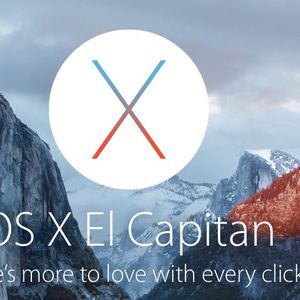
OS X El Capitan
OS X 10.11 El Capitan, released on September 30, 2015, is the next iteration of OS X, building on the features and design changes introduced with OS X Yosemite. OS X El Capitan might seem like a strange name, but it's meant to highlight the OS's position as an update that brings under-the-hood improvements and refinements to OS X Yosemite. In real life, El Capitan is one of the most popular rock formations and landmarks located within Yosemite National Park. The "El Capitan" name for OS X 10.11 reflects a long-running OS X naming scheme that's used to denote updates that are refinements to previous updates, following in the footsteps of Leopard/Snow Leopard and Lion/Mountain Lion. With El Capitan, Apple focused on two major areas: user experience and performance. Improvements to window management, apps, and Spotlight search enhance the way we use our Macs, while under-the-hood additions like Metal graphics technology make everyday activities like launching apps faster.
Read Full Roundup • Last updated 09/2016
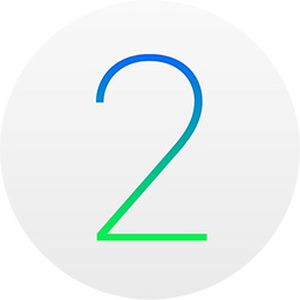
watchOS 2
watchOS is the operating system that runs on the Apple Watch, much like iOS runs on iPhones and iPads and OS X runs on Macs. While watchOS has taken design cues from iOS 8 and iOS 9, it's been built from the ground up for the Apple Watch, with features and apps that take advantage of the hardware in the wrist-worn device. Apps like Activity and Workout read data from the accelerometer and the heart rate sensor, while communication features let users send sketches, heartbeats, and animated emoji. Notifications are sent from the iPhone and delivered with small haptic taps on the wrist, while Glances offer up quick tidbits of information that can be digested in just a few seconds. Introduced at the 2015 Worldwide Developers Conference, watchOS 2 brings a lot of important functionality to the Apple Watch. Most of what's included is aimed at developers, but the new tools developers have to work with offer better third-party apps and Apple Watch interactions for all of us. watchOS 2 introduces support for native apps, which means apps are able to run entirely on the Apple Watch without relying on the iPhone. It also allows developers to access the device's built-in heart rate sensor, Taptic Engine, accelerometer, and microphone, and build third-party complications to display information on the watch face. As of June 2016, all new Apple Watch apps submitted to the App Store must be native apps built using the watchOS 2 SDK.
Read Full Roundup • Last updated 09/2016
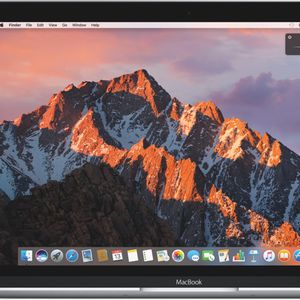
macOS Sierra
macOS Sierra, the next-generation Mac operating system, was unveiled at the Worldwide Developers Conference on June 13, 2016 and launched to the public on September 20, 2016. Apple chose to do away with the OS X name in favor of the new "macOS" name to bring the Mac operating system in line with iOS, watchOS, and tvOS. The main new feature in macOS Sierra is Siri integration, bringing Apple's personal assistant to the Mac for the first time. Siri offers many of the same capabilities available on iOS, along with Mac-specific functionality like the ability to search through documents to quickly find files. There's also an option to pin Siri search results to the Today section of the Notification Center or to add them to documents to provide up to date information at a glance. Siri can also do things like search through Photos, set reminders, initiate FaceTime calls, and more. In Photos, computer vision and new deep learning algorithms allow the app to recognize people, places, and things in images using facial, object, and scene recognition, using the information to group images into intelligent collections and enable powerful search capabilities. A new "Memories" tab creates curated collections of past photos to resurface old memories, and there's a new "Places" album for displaying all photos on a world map.
Read Full Roundup • Last updated 09/2017
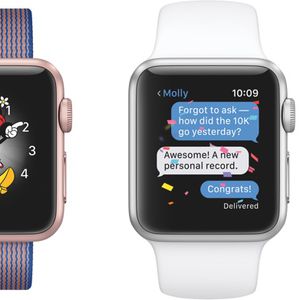
watchOS 3
The latest version of the watchOS operating system, watchOS 3, was first introduced at the Worldwide Developers Conference on June 13, 2016, and was made available to the public on September 13, 2016. watchOS 3 is a significant update to the operating system, introducing new apps, new watch faces, and impressive performance improvements.watchOS 3 introduces a Dock that houses a user's favorite and recently used apps so they're easier to access. Favorite Apple Watch apps saved to the Dock are kept up to date and are able to launch instantly, cutting down on app loading times. Navigation has been improved, with left and right swipes now used to change the watch face. A revamped Control Center with more information is available when swiping upwards on the Apple Watch screen. Activity sharing is new in watchOS 3, allowing Apple Watch owners to share their workout and activity information with friends to compete and stay motivated. New activity-based Smart Replies in the app are available to communicate with friends and family over activity achievements.
Read Full Roundup • Last updated 09/2017
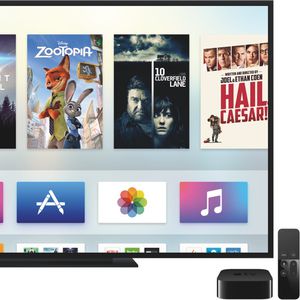
tvOS 10
tvOS is the operating system that runs on the Apple TV, taking iOS-style design elements and translating them to an interface made for the larger screen of a television set. tvOS is designed to put content front and center, with a familiar app-centric design that's easy to navigate through the touch-based remote and Siri voice commands. tvOS, like iOS, features a full App Store that allows users to choose apps to install on the device. The App Store features content-based apps like Netflix and Hulu, but it also features games, weather, educational options, photo viewing apps, music apps, and more. Since the fourth-generation Apple TV launched in October of 2015, Apple has been steadily updating tvOS with new features like Bluetooth keyboard support, dictation support, and more, and on June 13, 2016, Apple unveiled the latest version of the tvOS operating system -- tvOS 10.tvOS 10 builds on the initial tvOS features, introducing improved search, expanded Siri capabilities, Single Sign-On authentication, and a dedicated Apple TV Remote app for iOS devices.
Read Full Roundup • Last updated 09/2017
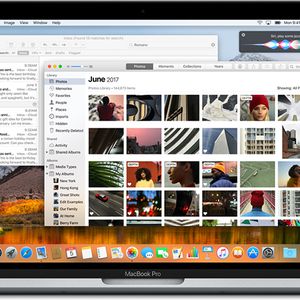
macOS High Sierra
Apple introduced macOS High Sierra at the 2017 Worldwide Developers Conference in June. macOS High Sierra, as the name suggests, is a follow-up to macOS Sierra and is largely designed to improve on macOS Sierra through major under-the-hood updates and a handful of outward-facing changes. With macOS High Sierra, Apple says it's focusing on the fundamentals: data, video, and graphics. High Sierra is about deep technologies that provide a platform for future innovation while also introducing new technologies to make the Mac more reliable, capable, and responsive. A more modern file system, Apple File System (APFS), is the new default in macOS High Sierra. APFS is safe, secure, and optimized for modern storage systems like solid state drives. It introduces features like native encryption, safe document saves, stable snapshots, and crash protection. APFS is ultra responsive and brings major performance improvements for Macs.High Sierra includes High Efficiency Video Encoding (HEVC, aka H.265), which preserves better detail and color while also introducing much improved compression compared to H.264. HEVC software encoding is available for all Macs in High Sierra, but newer models include HEVC hardware acceleration.
Read Full Roundup • Last updated 10/2018
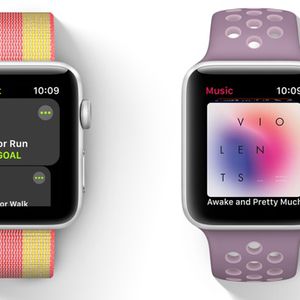
watchOS 4
watchOS 4 is the publicly available version of watchOS, the operating system that runs on the Apple Watch. watchOS 4 was introduced at the Worldwide Developers Conference in June of 2017, and it will be followed by watchOS 5 in fall 2018. In watchOS 4, Apple has focused on introducing a more personalized Apple Watch experience and improving what people love most about the Apple Watch, bringing new Activity, Music, and Workout features.There are three new watch faces in watchOS 4, including a new Siri watch face that offers up dynamic, personalized information that changes based on the time of day. It takes into account your daily routine, the apps you use, and when you use them to predict what you'll want to see next. Other watch faces include a photo-based Kaleidoscope face and a new Toy Story face starring Jessie, Woody, and Buzz Lightyear. With watchOS 4, Apple wants to better motivate you to close your Activity rings, so there are new notifications when you're close to meeting a goal, more exciting animations when you reach your target, and personalized monthly fitness challenges based on your own Activity history.
Read Full Roundup • Last updated 09/2018
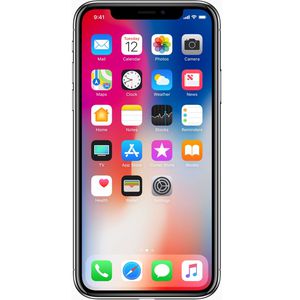
iPhone X
The iPhone X, pronounced "iPhone 10," was introduced at Apple's September 2017 event as a classic "One more thing..." addition to the iPhone 8 and 8 Plus product lineup. The iPhone X has since been replaced by the iPhone XR, iPhone XS, and iPhone XS Max, and Apple has discontinued the device to focus on the newer iPhones.Apple's aim with the iPhone X was to create an iPhone that's all display, blurring the line between physical object and experience. The 5.8-inch front screen melts into a highly polished curved-edge stainless steel band encircling a durable all-glass body available in two pearlescent finishes: Space Gray and Silver. Both feature a black front panel.The edge-to-edge top-to-bottom Super Retina display adopts OLED technology for true-to-life colors, deep blacks, and a million-to-one contrast ratio. It features a 2436 x 1125 resolution and 458 pixels per inch. It supports HDR, wide color, 3D Touch, and True Tone for adjusting the white balance of the display to match the ambient lighting.
Read Full Roundup • Last updated 09/2019

macOS Mojave
macOS Mojave, introduced at the 2018 Worldwide Developers Conference, is the latest version of the operating system that runs on Apple's Macs. Inspired by the desert at night, macOS Mojave is the first Mac update in several years not to use a mountain-themed name, with its new moniker representing the visual changes made to the software. The standout feature in macOS Mojave is a system-wide Dark Mode, which extends beyond just the dock and the menu bar to full windows and apps, with native apps like Mail, Calendar, iTunes, Xcode, and more adopting the dark theme. Dark Mode is, of course, an optional feature, so users who prefer a lighter look can continue to use the light mode. A Dynamic Desktop option introduces wallpapers that subtly change throughout the day, while Desktop Stacks organize all your desktop files into neat piles arranged by type, date, or tag. Finder has been revamped with a Gallery View for previewing files one by one, and a Finder Sidebar offers up file information at a glance. Contextual, customizable Quick Actions within Finder let you interact with files and do things like rotate photos or edit files without leaving the Finder interface, and a revamped Quick Look view integrates Markup, providing another way to make simple, quick edits to your files.
Read Full Roundup • Last updated 10/2019
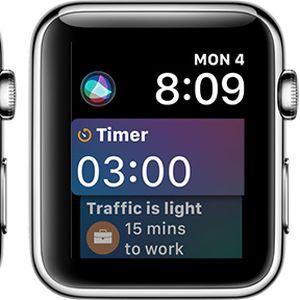
watchOS 5
Introduced at the 2018 Worldwide Developers Conference, watchOS 5 is the current publicly available version of watchOS, the operating system that's designed to run on the Apple Watch. With watchOS 5, Apple focused on introducing new ways for you to stay active and connected to the world around you. watchOS 5 was replaced with watchOS 6 on September 19, 2019 and it is no longer the newest version of watchOS.The headline feature in watchOS 5 is a Walkie-Talkie app, which introduces a new way to communicate on the watch by merging real-time voice conversations with the spontaneity of messaging. The Walkie-Talkie app works like a traditional Walkie-Talkie, with press-to-talk communication with your friends and family.To motivate you to work out, watchOS 5 brings a new Competition option that lets you challenge your friends to a seven-day competition to see who can earn the most activity points. Regular progress reports let you know where you and your friends stand, with the winner receiving a special award. Several new workout types have been added, including Yoga and Hiking, while Outdoor Runs have gained support for rolling mile pace, custom pace alert, and cadence for better tracking capabilities.
Read Full Roundup • Last updated 09/2019

tvOS 12
The fourth- and fifth-generation Apple TVs run an operating system called tvOS, which was built from the ground up to provide a simple, easy-to-navigate television watching experience. tvOS is designed to put content front and center, with a familiar app-centric design that's controlled through the touch-based remote and Siri voice commands. tvOS features a full App Store for downloading a range of different apps and games that can be used on the Apple TV, along with several built-in apps, much like iOS. Built-in apps include Photos for accessing your Photo Library on the Apple TV, Apple Music, Podcasts, Computers for Home Sharing, and TV, an app that aggregates TV and movie content from a wide range of apps. Siri integration is a key part of tvOS, allowing users to search for specific content via voice for quicker content access, and there are useful features to make television watching simpler, like single sign-on or zero sign-on for more quickly signing into third-party apps that require authentication with your cable credentials. Apple adds new features and introduces new versions of tvOS on a regular basis, but tvOS updates have historically been smaller in scale than updates for iOS, macOS, and watchOS. Since its 2015 debut, tvOS has seen few changes to its overall design and layout, but a few new features have launched.
Read Full Roundup • Last updated 09/2019
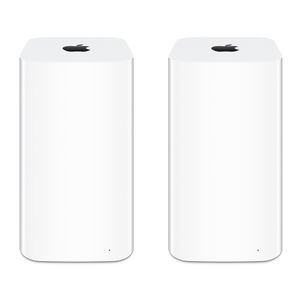
AirPort
Apple in April of 2018 announced that it has officially ended development on its AirPort line of products. We're discontinuing the Apple AirPort base station products. They will be available through Apple.com, Apple's retail stores and Apple Authorized Resellers while supplies last," said an Apple spokesperson. Apple will not manufacture additional AirPort Express, Extreme, and Time Capsule products, but existing inventory was available until it sold out in November 2018.Apple will be providing service and parts for the current-generation AirPort Base Stations for the next five years, and the company is sharing several support documents to assist customers who are transitioning away from the AirPort products.
Read Full Roundup • Last updated 01/2019

Apple Cyber Monday
Cyber Monday, which takes place on November 27th in 2017, is a major shopping holiday in the United States. It follows Black Friday, and marks another day of major sales both online and in retail stores. Retailers across the country drop prices on thousands of items on Cyber Monday, and in some cases, the sales last for an entire week.Apple products on the cheap are highly desired, and in recent years, retailers have offered some fantastic deals both on Black Friday and on Cyber Monday. We're gathering up a list of all the retailers, both online and in-store, offering discounts on iPhones, iPads, iPods, MacBooks, Beats headphones, Apple accessories, software, and more.Our Black Friday deals can be found in our dedicated Black Friday roundup, while this Cyber Monday roundup focuses on deals that will be available starting on November 27. Black Friday's focus is often in-store sales, while Cyber Monday primarily highlights deals you can get online without leaving the house.
Read Full Roundup • Last updated 11/2017
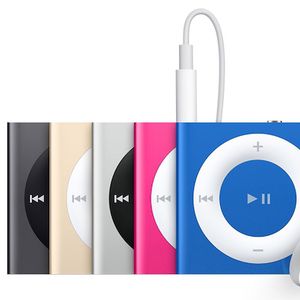
iPod shuffle
On July 27, 2017, Apple removed the iPod shuffle from its website and online store, marking its discontinuation after twelve and a half years on the market in various forms. With the simultaneous discontinuation of the iPod nano, the iOS-based iPod touch is the only remaining device in the iPod family.At the time of its discontinuation, the iPod shuffle was available in six colors in a single 2 GB capacity priced at $49.Apple's iPod shuffle went through several design changes since its introduction in January 2005, with the final form factor having been introduced in September 2010. Priced at $49 and offering 2 GB of storage, the only changes made to the device over the subsequent years were in color options.
Read Full Roundup • Last updated 08/2017
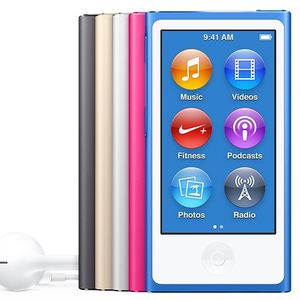
iPod nano
On July 27, 2017, Apple removed the iPod nano from its website and online store, marking its discontinuation after almost twelve years on the market in various form factors. With the simultaneous discontinuation of the iPod shuffle, the iOS-based iPod touch is the only remaining device in the iPod family.At the time of its discontinuation, the iPod nano was available in six colors in a single 16 GB capacity priced at $149.Perhaps more than any other iPod product, the iPod nano was the subject of significant experimentation by Apple, with the company trying out a number of different form factors based on a click wheel interface before moving to an iPod shuffle-shaped design centered around a multi-touch screen and eventually settling on a design more like a miniature iPod touch with the final seventh-generation models released in October 2012.
Read Full Roundup • Last updated 08/2017
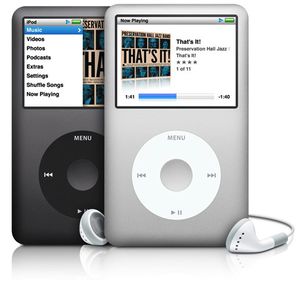
iPod classic
The iPod classic was the direct descendent of Apple's original iPod released in 2001 and offers the traditional click wheel interface introduced nearly a decade ago on the iPod mini before making its way into the fourth-generation iPod. With the iPod classic lacking iOS and touchscreen support, the device's main function over its last few years was to provide customers with an iPod product option offering significant amounts of storage for their music collections. The final version of the iPod classic contained a 160 GB traditional hard drive, offering significantly more capacity than the 64 GB of flash memory found in the high-end iPod touch. With the iPhone starting to offer a maximum of 128 GB of storage with the iPhone 5 and 6 Plus, however, Apple discontinued the iPod classic on September 9, 2014, five years to the day after its final update.The final generation of the iPod classic was introduced in September 2009, and while the product's demise was rumored a number of times over the years, the product lasted a full five years with silver and black color options at a $249 price point before being discontinued.Back in early 2011, Toshiba introduced a 220 GB 1.8-inch hard drive that could have allowed Apple to increase the capacity of the iPod classic, and tightening supplies very soon after led to speculation that the device could see an update or discontinuation. By September 2011, Apple had removed its click wheel iPod games from the iTunes Store. No such games had been added to the store since February 2009, but the complete removal of the games section from the iTunes Store fueled rumors that the iPod classic would soon be discontinued. Ultimately, however, it was not until 2014 that the iPod classic was finally retired from Apple's lineup.
Read Full Roundup • Last updated 09/2014
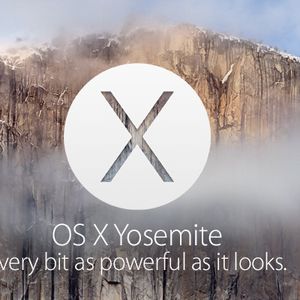
OS X Yosemite
Apple released OS X Yosemite to the public on October 16, 2014, following a media event that saw the unveiling of new iPads, a new Retina iMac, and a new Mac mini. It was succeeded by OS X El Capitan on September 30, 2015.OS X Yosemite was made available through the Mac App Store at no cost. Prospective users needed 2GB of RAM and 8GB of storage space, along with Snow Leopard at a minimum as Mac App Store access was required.Originally unveiled during Apple's Worldwide Developers Conference on June 2, 2014, Yosemite went through several months of beta testing before it saw its public release. Apple also launched a public beta for OS X Yosemite for the first time, allowing more than a million users to test the software before its release.OS X Yosemite introduced a number of visual changes, including a flatter, more modern look that emphasizes translucency, streamlined toolbars, and smarter controls.
Read Full Roundup • Last updated 10/2015
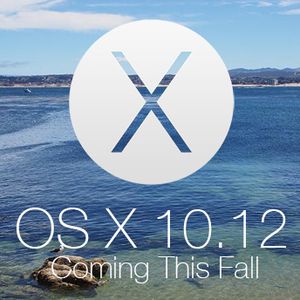
OS X 10.12
OS X 10.12 was expected to be the name of the 2016 Mac operating system update, following OS X 10.11, but Apple opted to change the name of its Mac operating system to "macOS" to bring it in line with tvOS, iOS, and watchOS.What was once OS X 10.12 is now known as "macOS Sierra," set to be released to the public in the fall of 2016. Full details on macOS Sierra, which includes new features like Siri integration and automatic Mac unlocking, can be found in our dedicated macOS Sierra Roundup.
Read Full Roundup • Last updated 06/2016
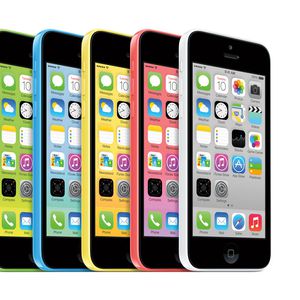
iPhone 6c
The "iPhone 6c" was one of the early names rumored for Apple's 4-inch iPhone before it launched on March 21, 2016 as the "iPhone SE." The iPhone SE combines the body of the iPhone 5s with many of the internals of the iPhone 6s, such as the A9 processor and 12-megapixel camera, resulting in a powerful but compact device.For details on the iPhone SE, make sure to check out our full iPhone SE roundup.
Read Full Roundup • Last updated 02/2016

